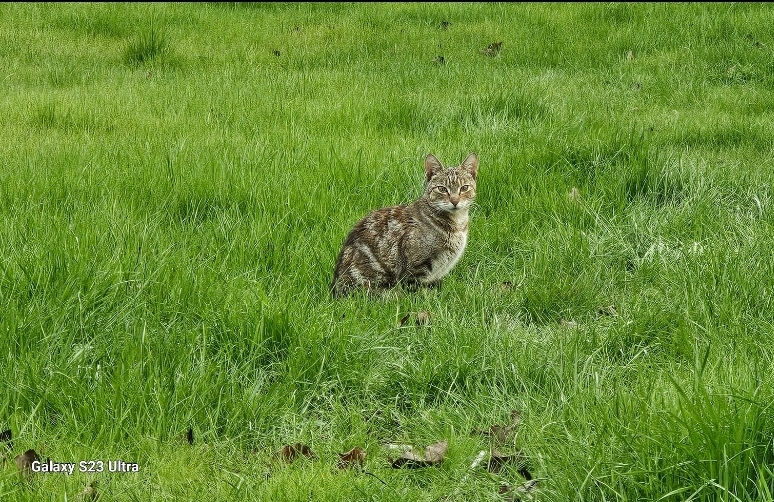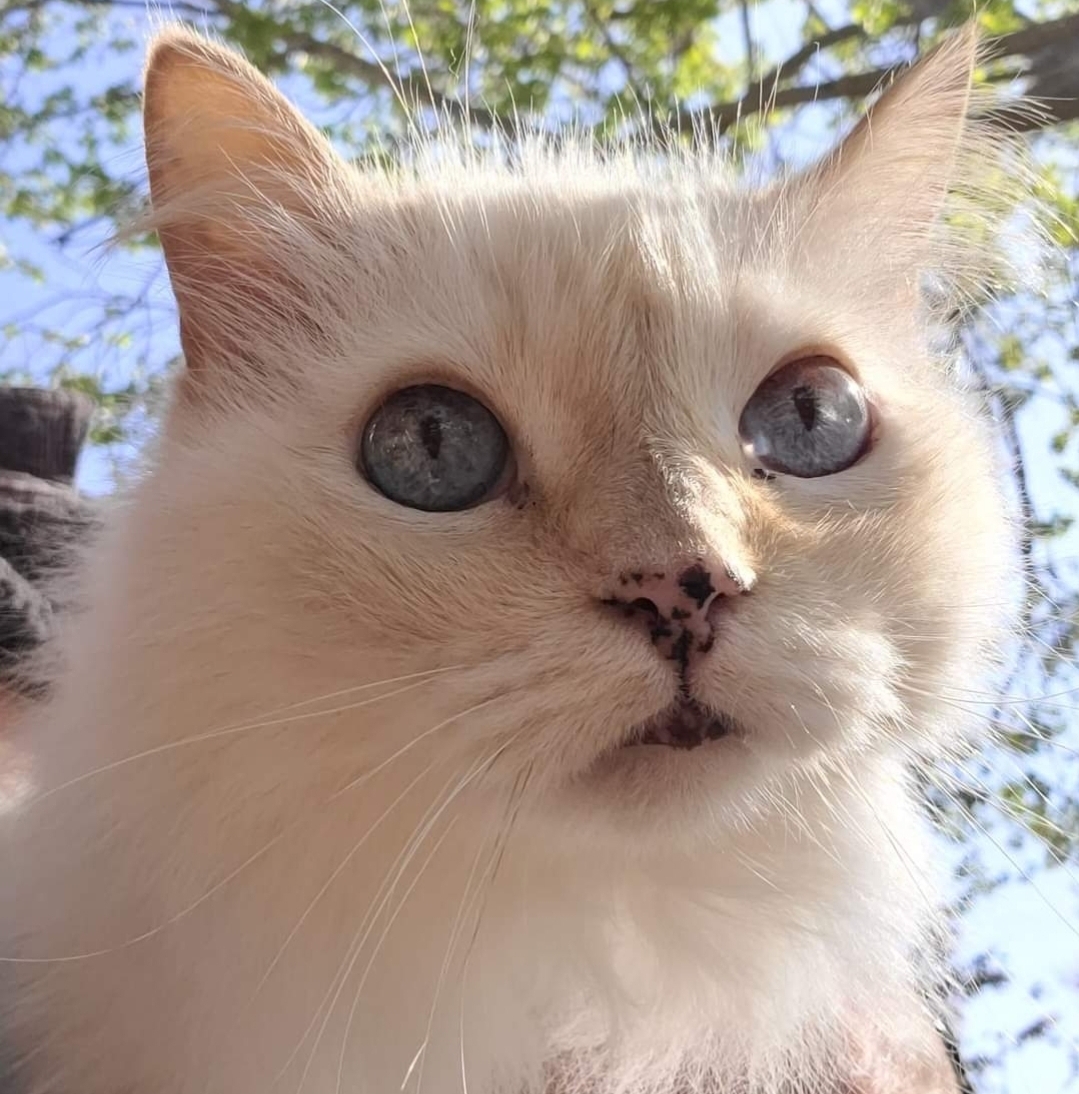
Brian S.
Thank you for taking June after my mom passed.
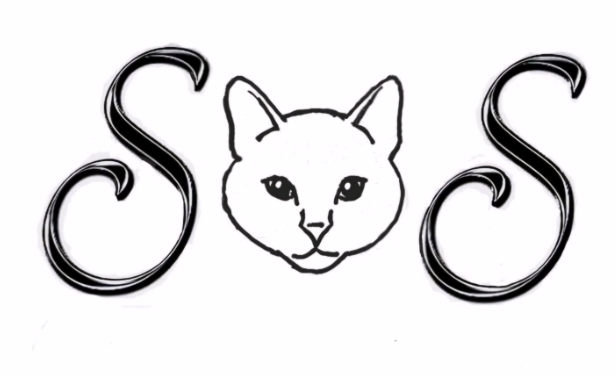
916-919-9322
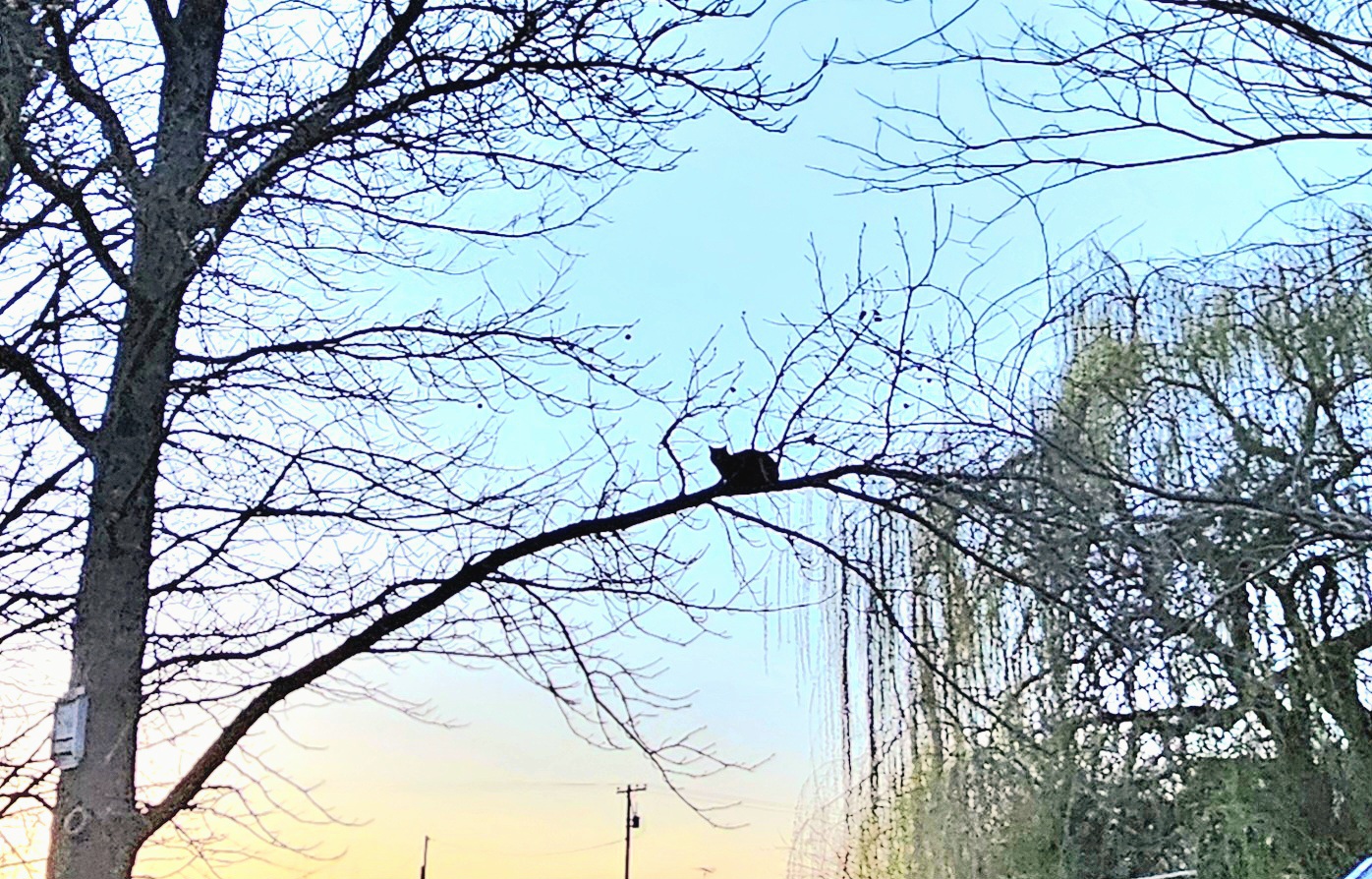
Each Cat has a story that was cut short because of neglect or simply being in the wrong place at the wrong time, and some have faced unimaginable hardships.
We are a 501c³ non-profit organization
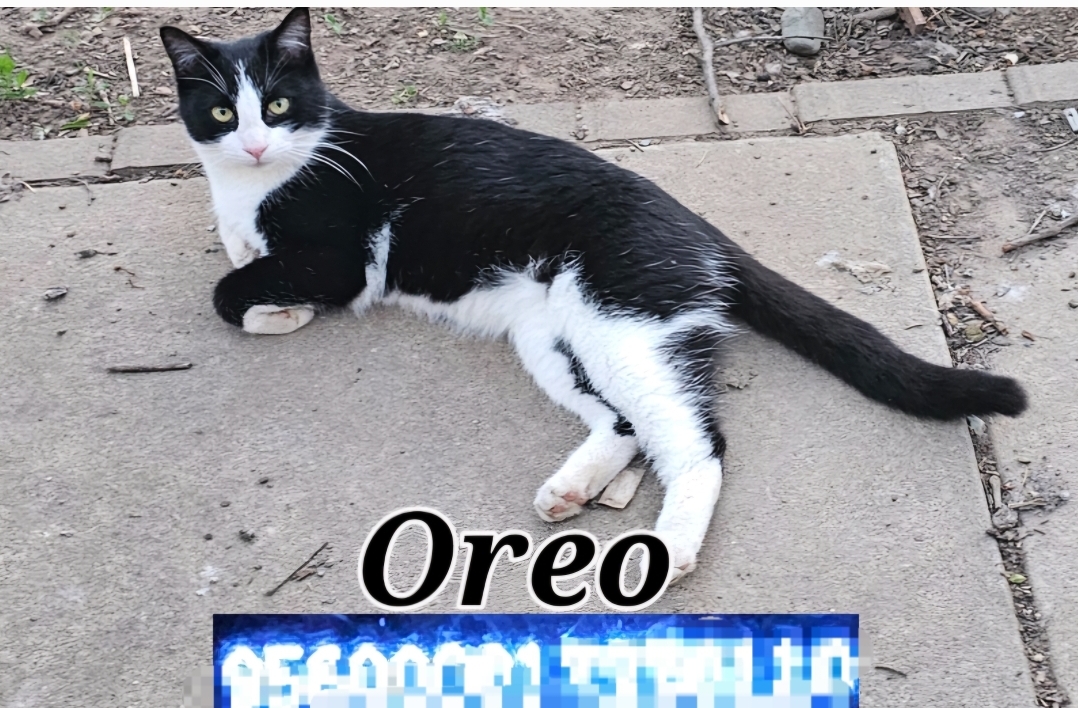
All of the cats are spayed and neutered except when they have a medical condition that the veterinarian decides surgery is not recommended. Nursing mother cats are spayed when their kittens are 2 months old or when they can be away from their mom for a few hours. The kittens are spayed/ neutered when they weigh at least 2lbs.
It is preferable that the cats are vaccinated prior to their arrival to reduce the spread of transmittable disease. Vaccinations are given at local Vaccination Clinics, at the Animal hospital during appointments, and here, with FDA approved vaccination kits ordered through veterinary supply sites, online. The cats receive yearly booster whenever possible. Their names and vaccination dates are kept on a spreadsheet to keep track of upcoming booster dates. All of the cats receive the FVRCP vaccination and all other vaccinations (Rabies, Leukemia, etc.) are given based on necessity and budget limitations.
Kittens begin to receive vaccinations when they are 6-8 weeks old.
The cats are free to roam. There are cages here but they are for isolation to monitor the cats during intake, sickness, injury, aggression, and prior to Spay or Neuter surgery. Smaller cages are for transport. Isolation cages are large dog crates, 3 tier cat cage, and outdoor habitat.
Each cat that arrives here is logged onto a spreadsheet that contains their name, description, microchip number, origin, date of flea/tick treatment, date of vaccination, their genealogy (if they are related to others in a family group), additional notes, and their picture is taken with their name added to it and 15 digit microchip number if they have one.
Information regarding when they were spayed or neutered is not necessary because all of the cats are spayed and neutered except one with a heart murmur and kittens that have pending surgery.
Not all cats get along and some are feistier than others. Fortunately, the number of cat fight related injuries is minimal and even non-existent most of the time.
Most cats are content as long as they have a safe place to nap, and they don't have to compete for food.
We cannot accept aggressive cats that pose a threat to our cat population or staff. Aggressive cats that do not respond to behavior modification, must be surrendered to Animal Control.
The cat's are treated with Revolution Plus Flea and tick prevention.
We use Resolution Plus because it treats fleas, ticks, ear mites, internal worms and parasites.
The cat's name and date of treatment is kept on a spreadsheet to keep track of the treatment schedule. A dosage chart based on weight is used to give the precise amount needed.
Some health issues can be treated with OTC remedies but when the cat requires medical attention or has an emergency, they go to the next available veterinarian appointment to try to resolve their problems. The animal hospitals we normally go to are Davies Animal Hospital, Rocklin Animal Eye Center, and UC Davis Small Animal Clinic.
Some cats have chronic or unknown health issues and if they are in distress, they are taken to the pet hospital for diagnostic testing and doctor recommendations.
Keeping cats healthy is an all day, everyday process. Infections and parasites spread quickly in community cat environments. Testing every cat's vomit and diarrhea is expensive so we purchase testing kits in bulk from veterinary supply distributors. Keeping food separated and frequent litter box cleaning helps reduce cross contamination. Antibiotics and other prescription medication are prescribed by our preferred local veterinary hospital,
There are cats with FIV here. Unfortunately, FIV is an untreatable but manageable disease. FIV must be tested in order for a diagnosis. Cats with FIV are not considered special needs and receive the same basic care as the other cats. However, if the cat exhibits an adverse condition, they are taken to the next available veterinary appointment.
Unfortunately, some cats do acquire FIP. Proper diagnosis of FIP requires a panel of blood tests at the local pet hospital. Every available option is explored to care for cats that exhibit FIP symptoms.
Unfortunately, we cannot accommodate special diet needs. The cats have access to clean water and dry food all day in a variety of inside and outside locations. We prefer to not give the cats low quality brands that may contain ash, cellulose, or corn byproducts. These and many other unspecified ingredients may cause internal health complications.
The cats get wet food dinner of Friskies (chicken, chicken & tuna) mixed with real chicken puree. Portions for each cat is measured with an ice cream scooper. Extra portions are available for cats that are still hungry.
Fortunately, cats are not the usual victims of predators. The local predators are, coyotes, foxes, bobcats, skunks, mountain lion, opossum, raccoons, rattlesnakes, and black widow spiders.
There is a fence along the perimeter of the property that is frequently inspected for damage and holes.
There are chickens, turkeys, ducks, goats, and horses here.
Yes, some of the cats are Feral. Most of the Feral cats were brought as kittens from a high risk area or found pregnant and are now spayed. There is a range of Feral cats here but none are vicious.
Only a few leave the property. Some have left and never came back and others, that leave the property, return for dinner.
All new cats begin their residence in isolation for approximately one week. The isolation time is spent in a room, an extra large dog kennel, 3 tier cat cage, or outside covered habitat kennel. This is a transitional calming phase in addition to observation and containment prior to spay or neuter surgery.
Cats normally acclimate quickly after a routine of good food, a variety of cat activities, and friendly interactions with the other cats.
Cats have inside and outside access through cat doors in the house, garage, and sheds.
All of the cats are scanned for a microchip and if they have a microchip, that number becomes part of the cat's profile record. Some cats were microchiped while with previous owners. Some cats were pulled off ofeuthanization lists by a rescue who then had the cat spayed/neutered and microchipped, some cats were microchipped while in a community cat colony that was displaced or relocated, and many of the cats are microchipped here with universal 900 sequence microchips.
This is not a rescue. We do not have the facility to treat, care for, or rehabilitate sick or injured animals and there is no on-site veterinarian. This is a sanctuary for friendly cats that no one would adopt after their owners died or could no longer care for them and no other person, sanctuary or rescue had space for them. While here, the cats receive basic care. They get good food, clean water, litter boxes are cleaned several times each day, they have a safe place to sleep and play, and they are taken to a veterinarian when they are in distress or show signs of illness. If they are not already spayed or neutered, they are isolated and placed on the next available surgery schedule through an animal hospital, SPCA, or a Spay/Neuter program, ie. Fieldhaven. Cats are placed here as a last resort option before being left on the street or placed in shelters where they may spend the rest of their life in a cage waiting to be euthanized.
We do keep in contact with previous owners whenever possible. Pictures and/or status update are available upon request.
We do not kennel or board cats here. Many of the cats are here because their original owners could not care for them or keep them in their home because of pet restrictions, relocating/ moving, or homelessness. If or when those circumstances change and the original owner wants their cat back, reunification is encouraged.
We corroborate with Friends of Felines Rescue to find forever homes for adoptable cats and kittens. If they are not adoptable, they are returned here to live. Click here to see adoptable cats and kittens on their website.
There are kittens and senior cats here.
Kittens are usually here because a trapped feral cat was too far along in her pregnancy and was not able to get to the next spay appointment before the birth of her kittens. In those situations, mom cat and kittens are isolated until mom can be away for a day to be spayed. The kittens are spayed or neutered when they reach 2 pounds. These kittens and mom's are placed for adoption whenever possible.
There are senior cats here. The older cats that live here just need a safe place during their final years and are here because their owner died, became homeless, or abandoned them. Any cat in distress is taken to the veterinary hospital for doctor recommendations.
All of the cats are humanly disposed when they die, either through an Animal Hospital or delivered to an animal crematorium, Heaven's Gate.
100% of the donations received go to the cats.
Money donations go towards Food, Vaccinations, Flea Treatment, Spay/Neuter surgeries, miscellaneous veterinary visits, treats, and toys. Minimal operating expenses begins at $34,000 each year. Actual expenses are much more.
Any donation amount is greatly appreciated.
The actual number varies. Each cat is logged onto a spreadsheet with identifying information and essential dates are recorded whenever possible. We document Name, description, origin, date of flea treatment and vaccinations, etc, along with any notes regarding the cat.
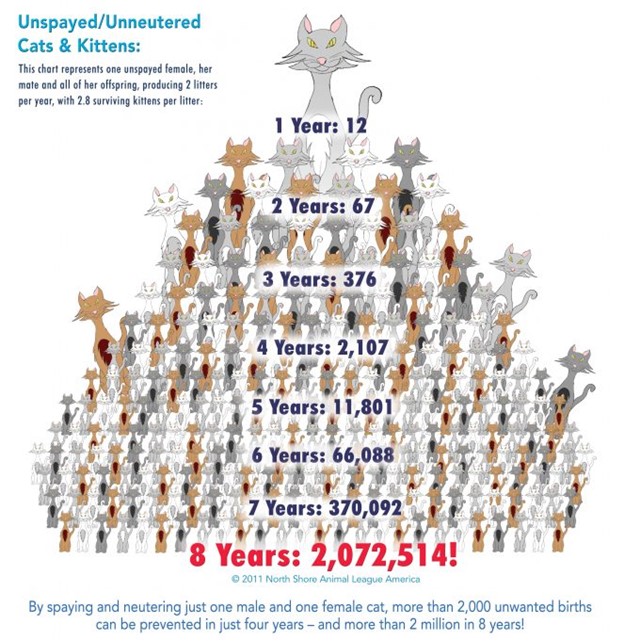
Image copied from North Shore Animal League America.
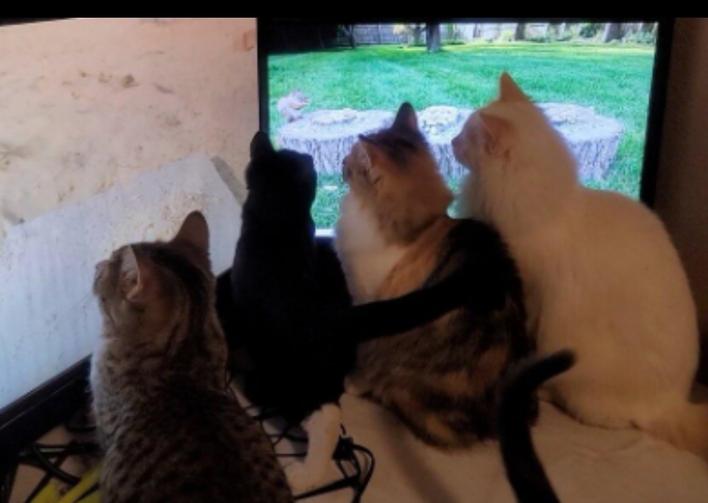
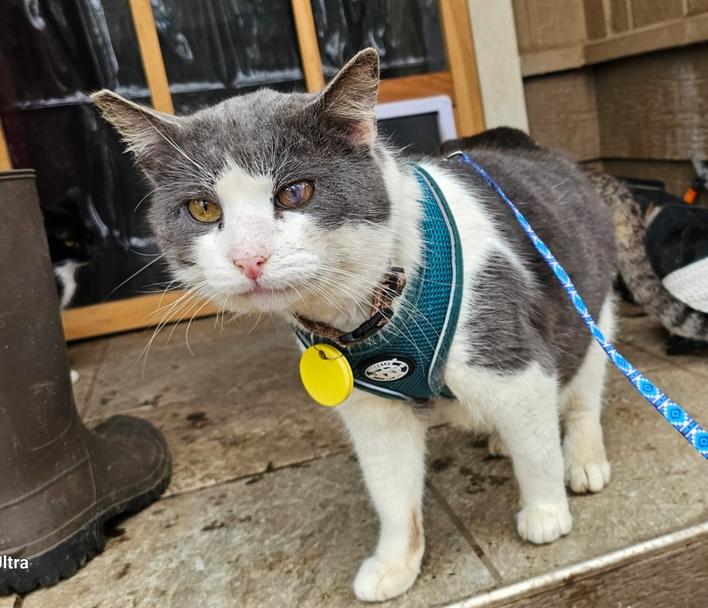
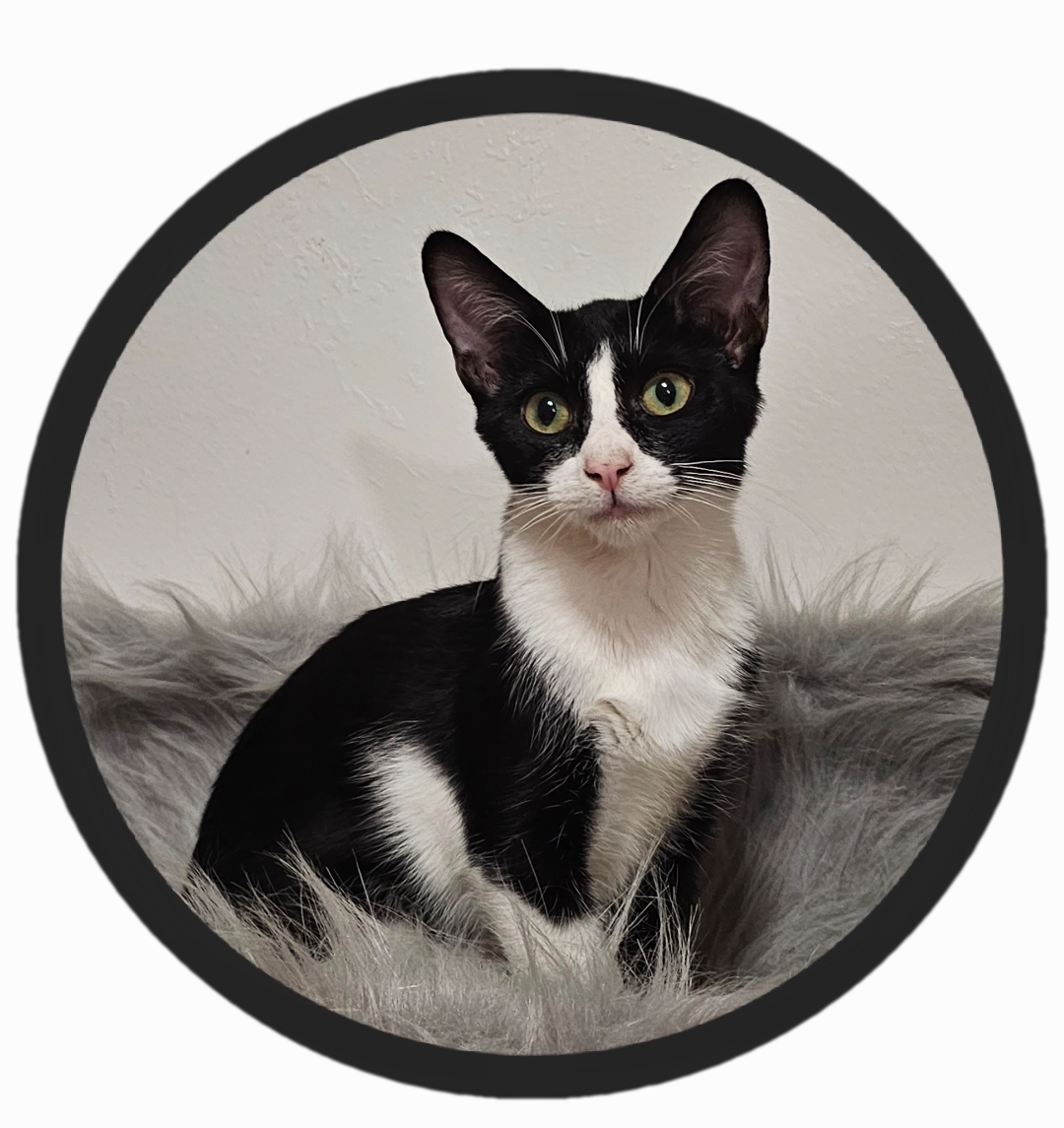
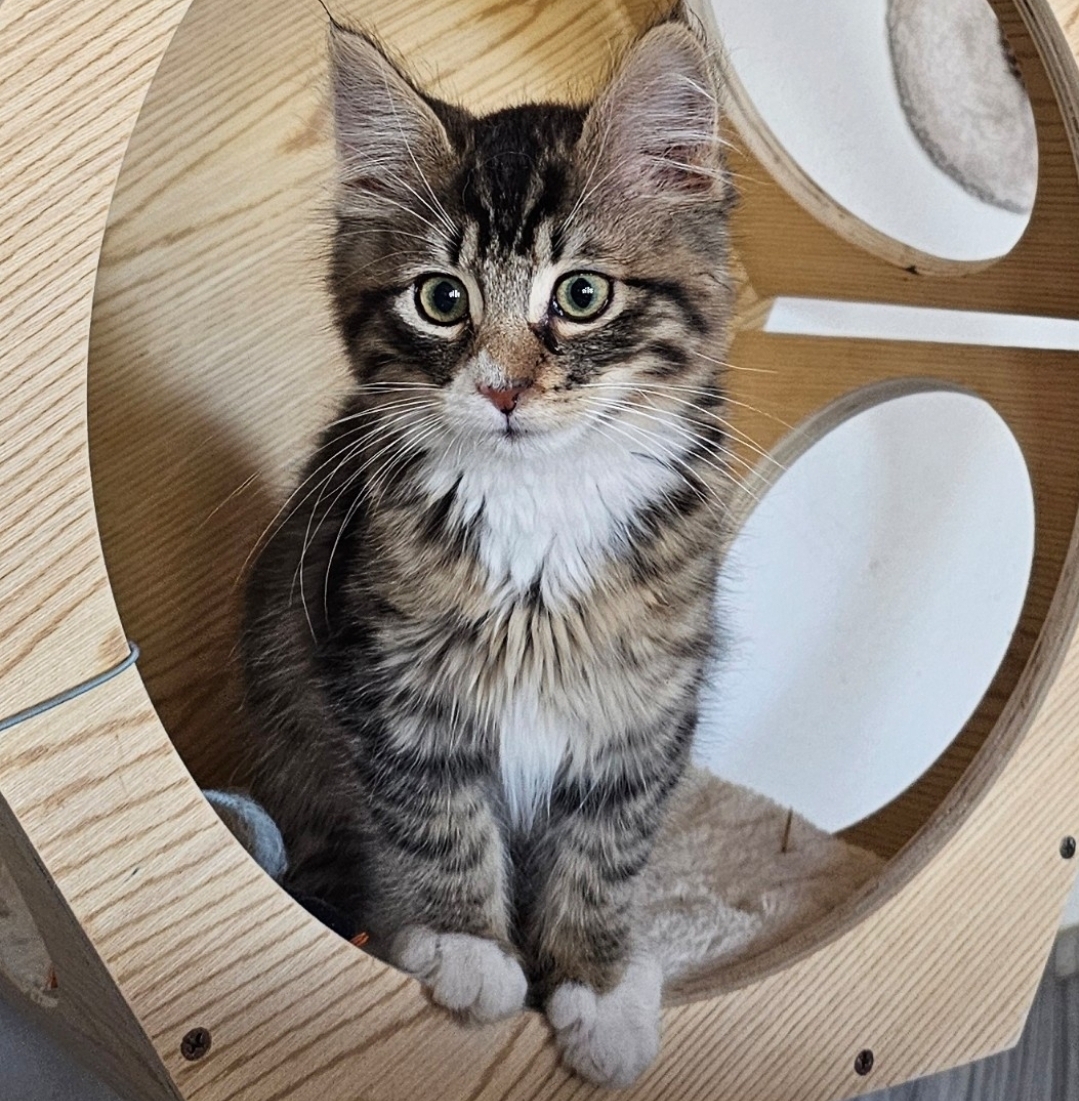
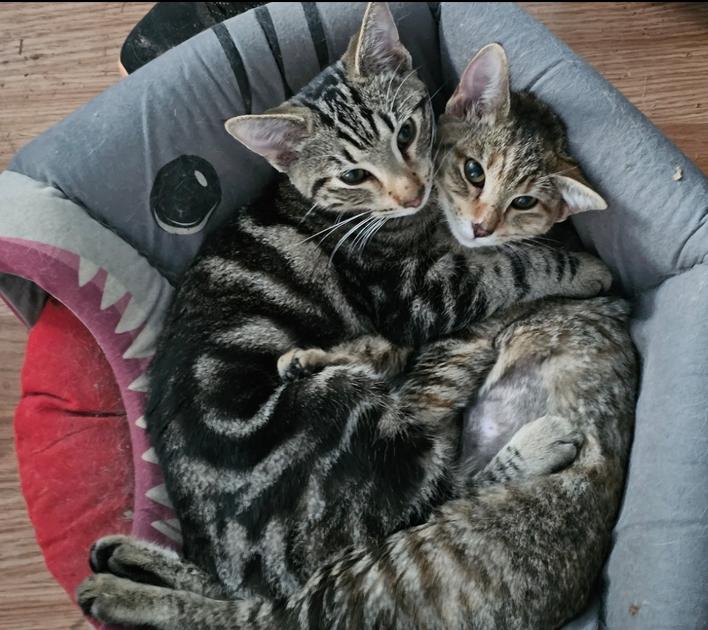
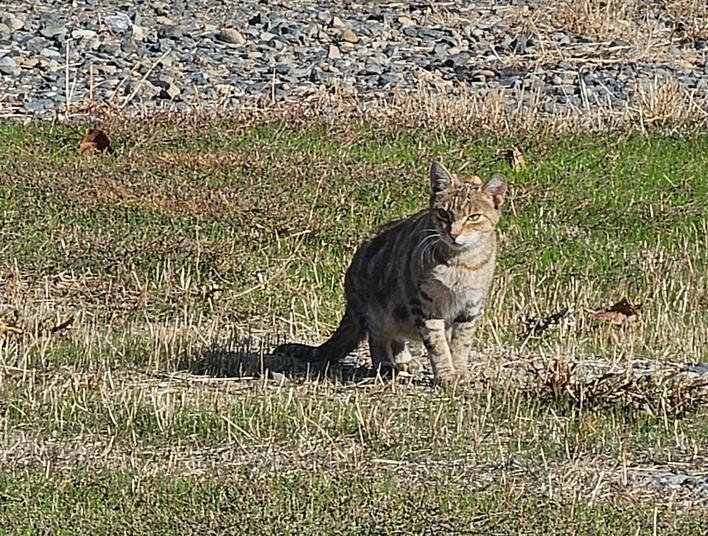
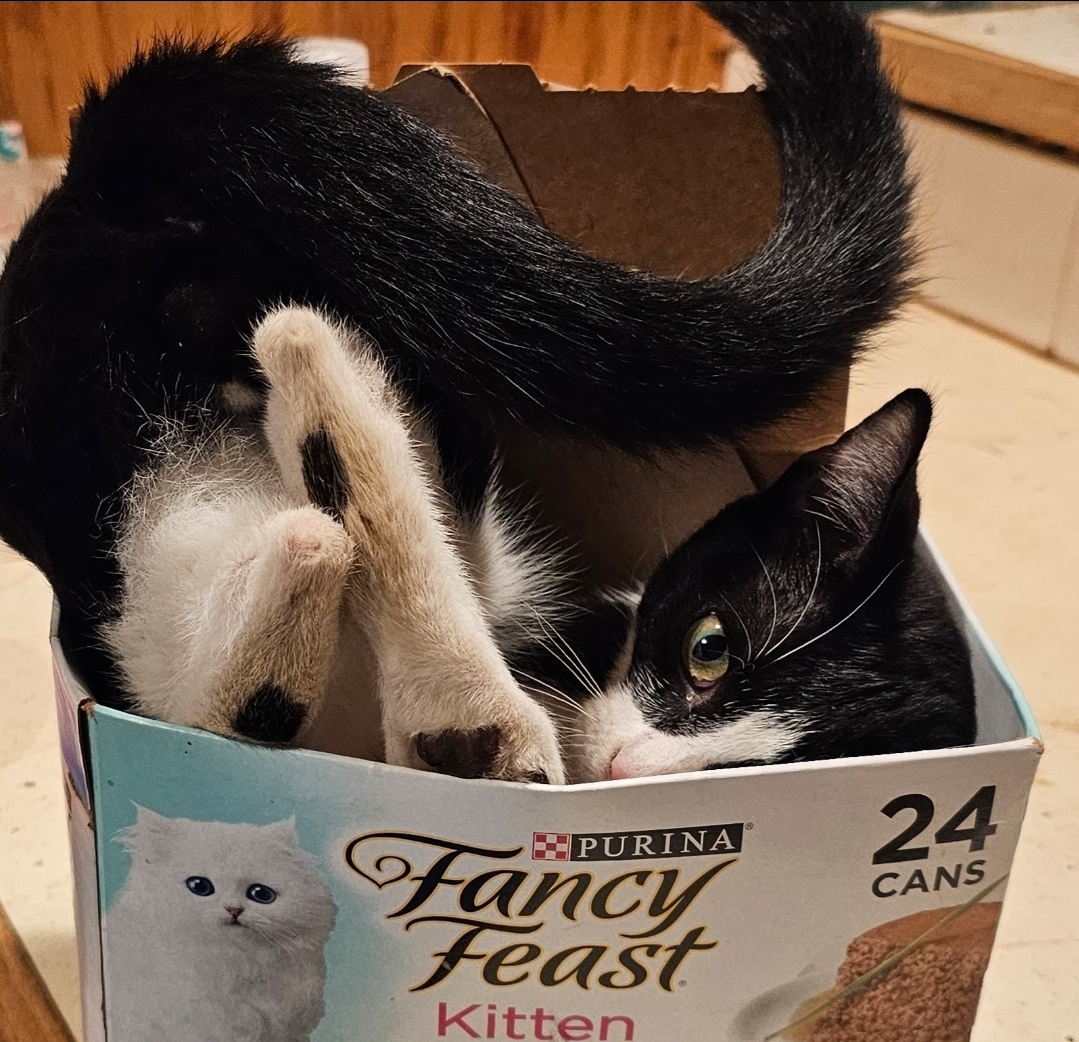
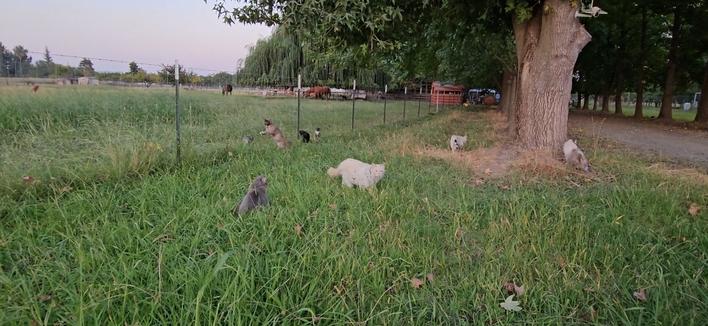
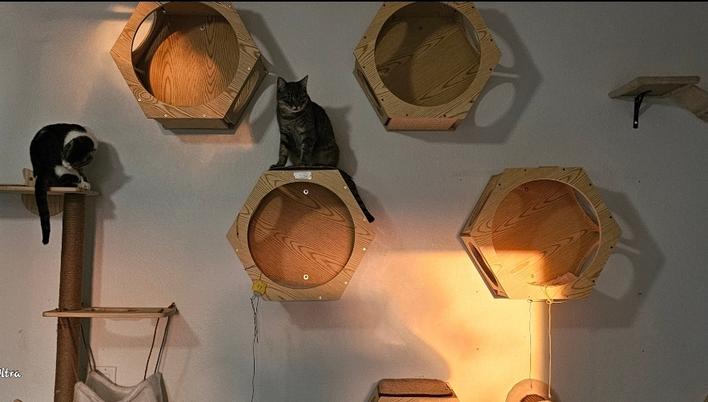
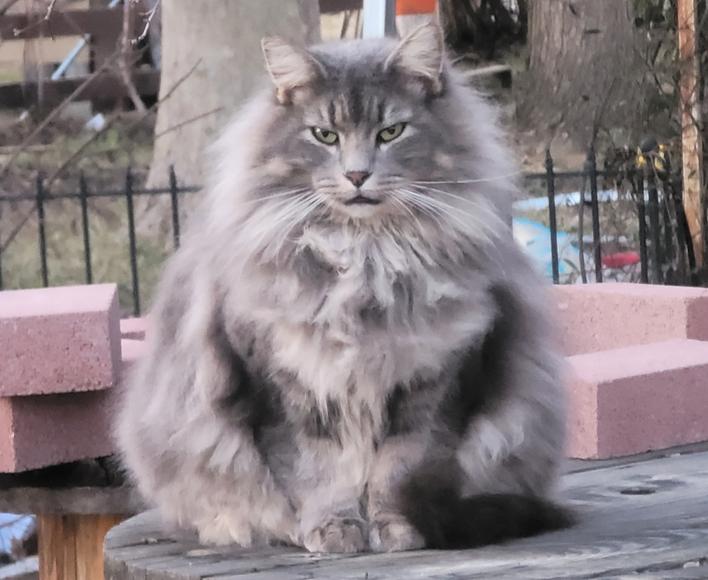
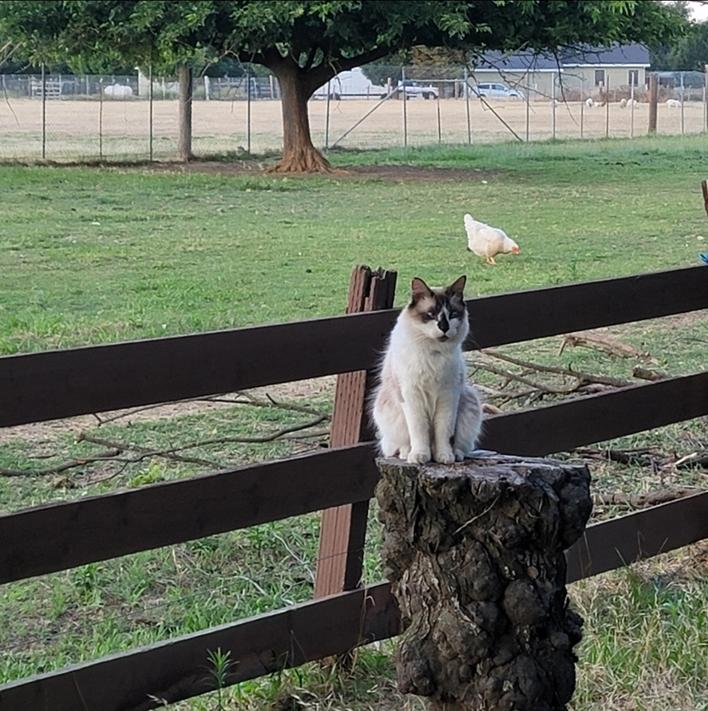
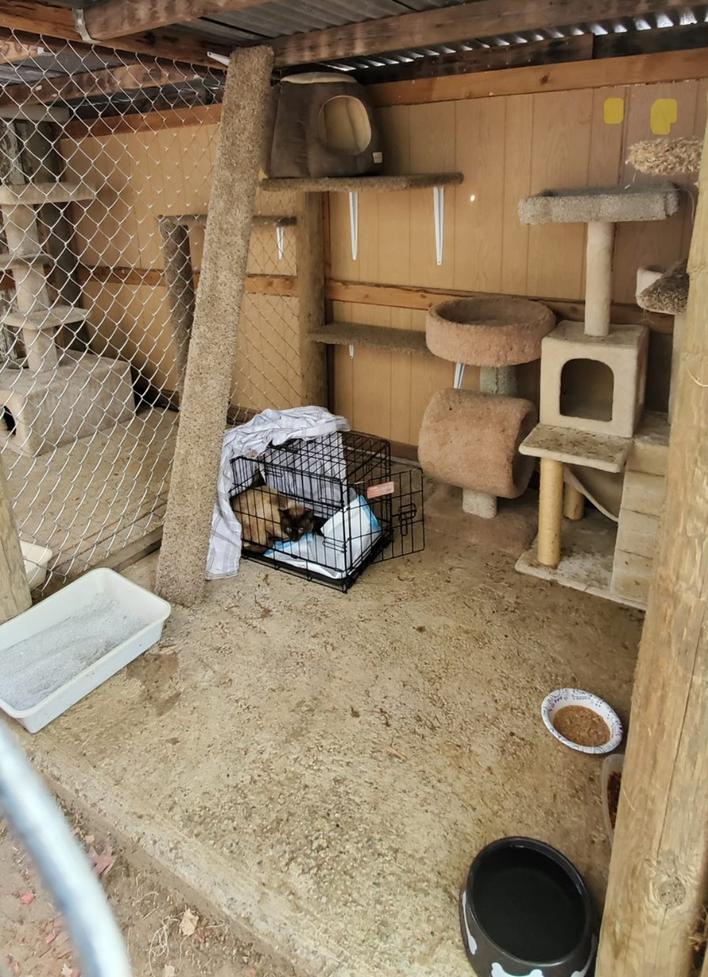
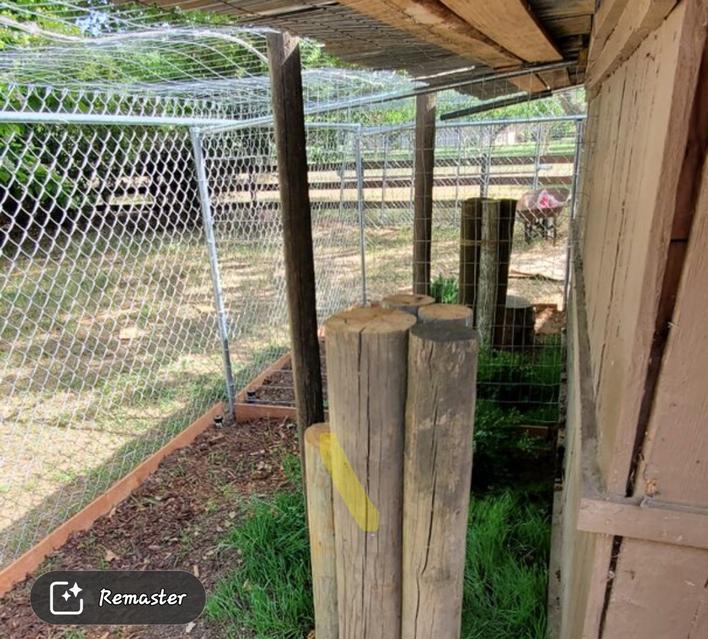
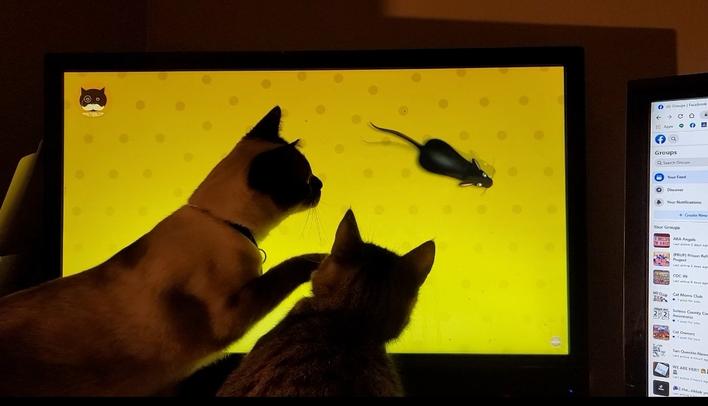
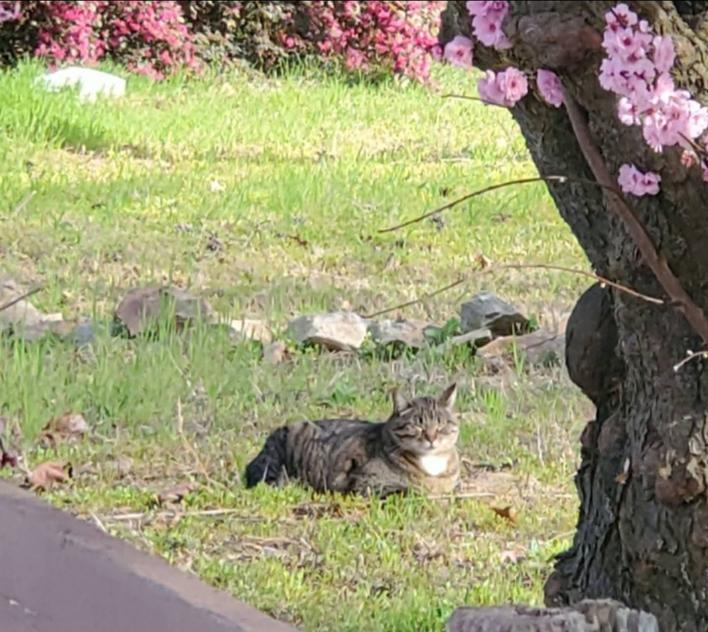
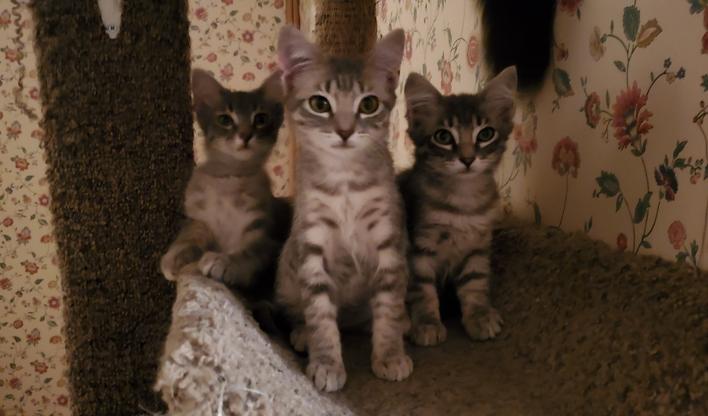
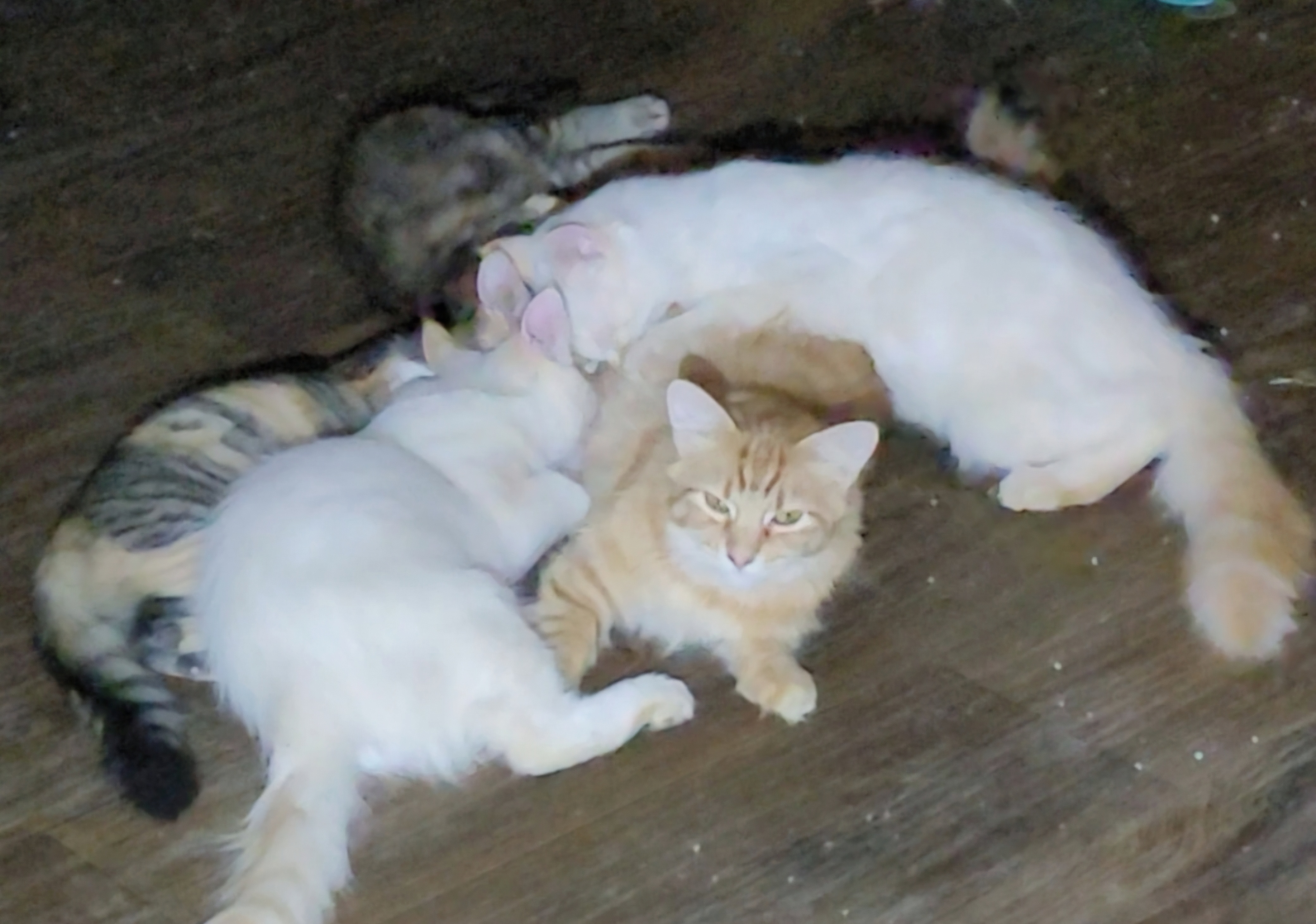
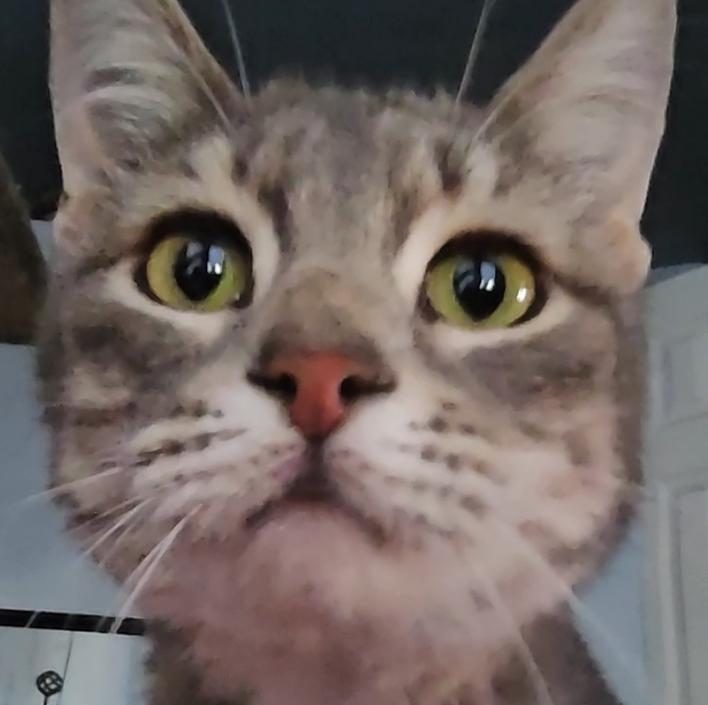
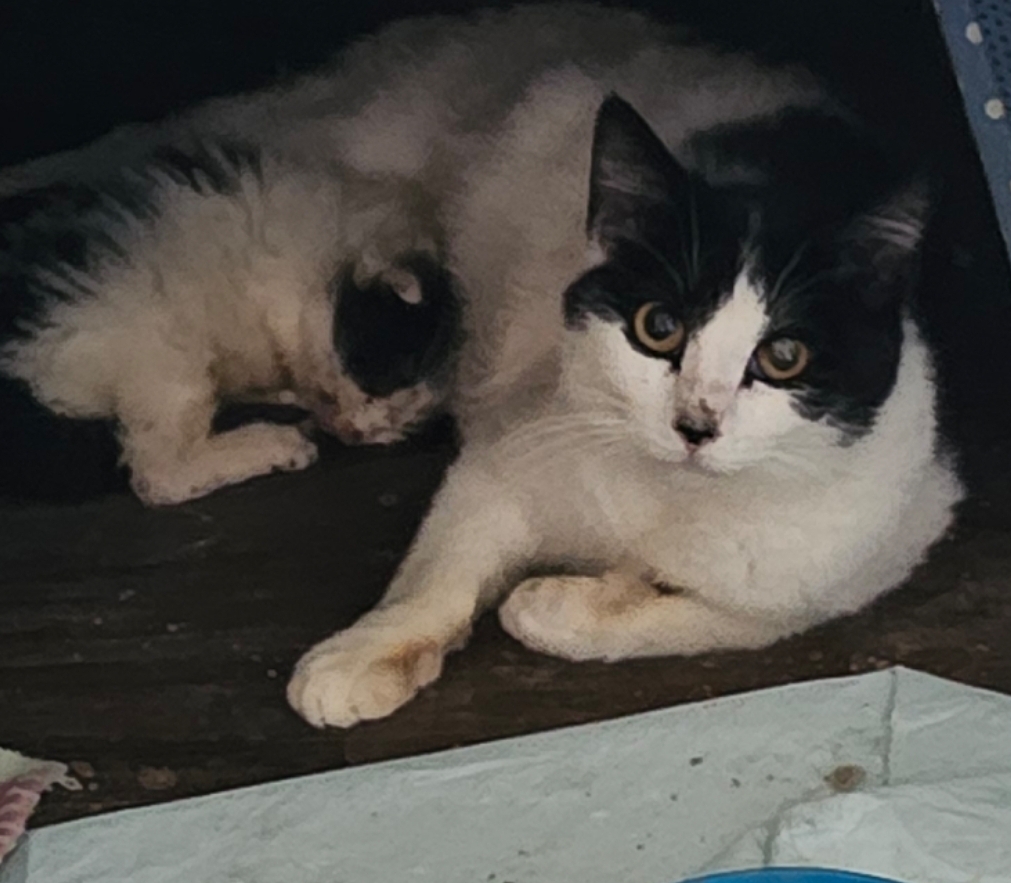
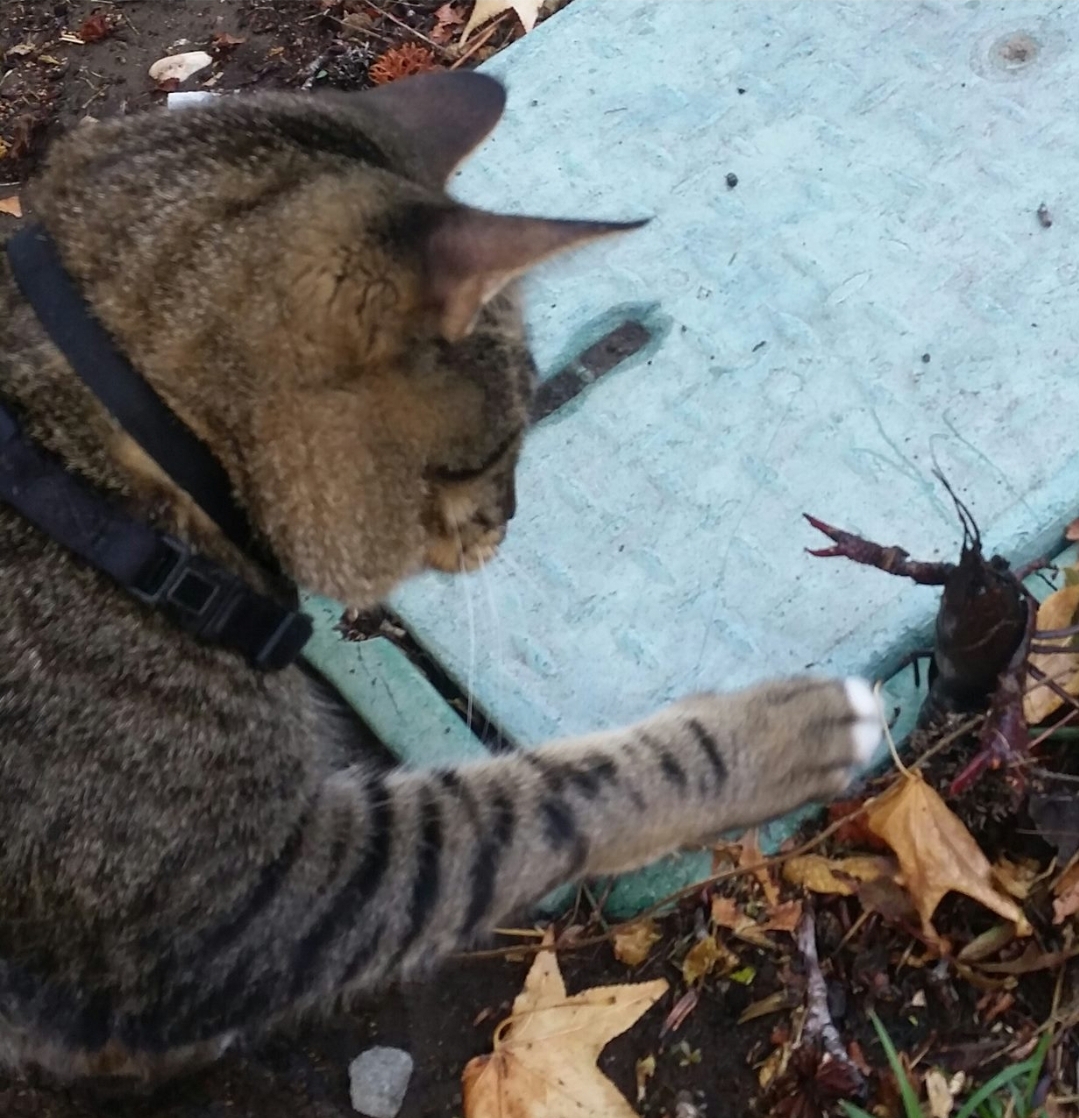
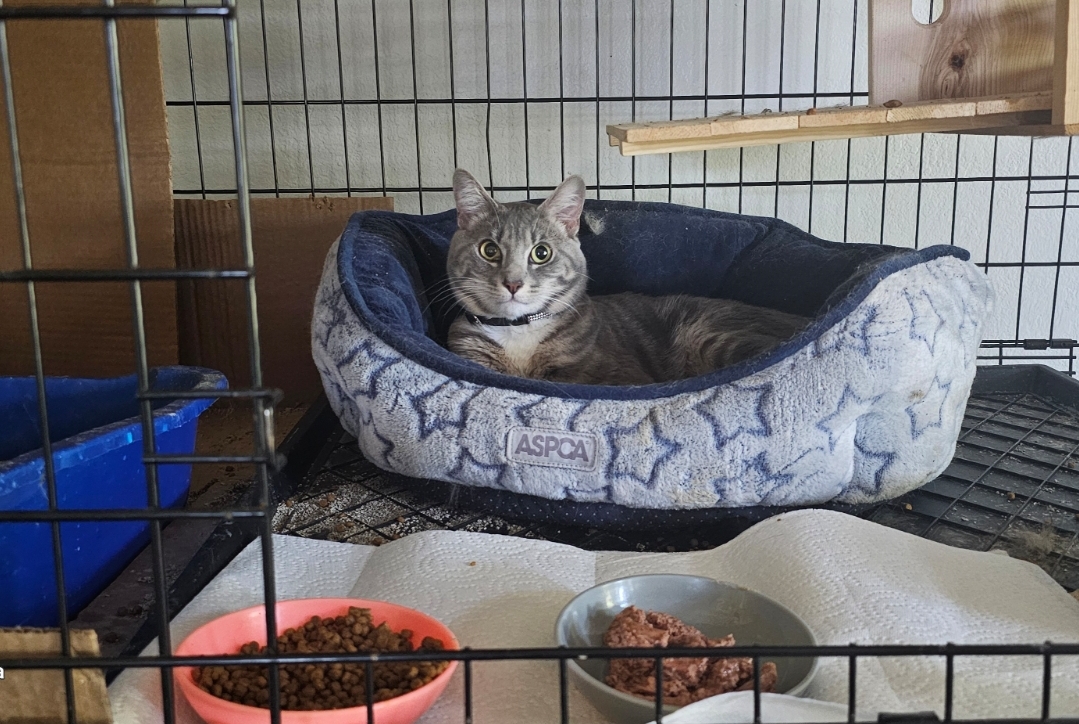
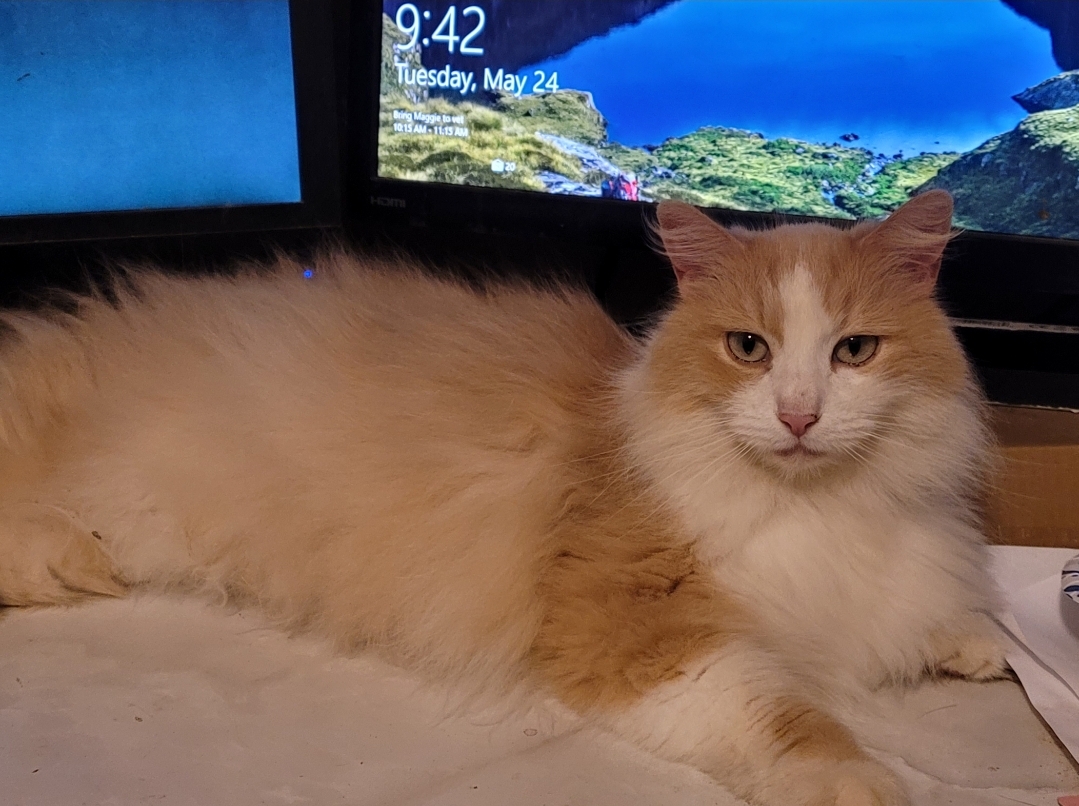
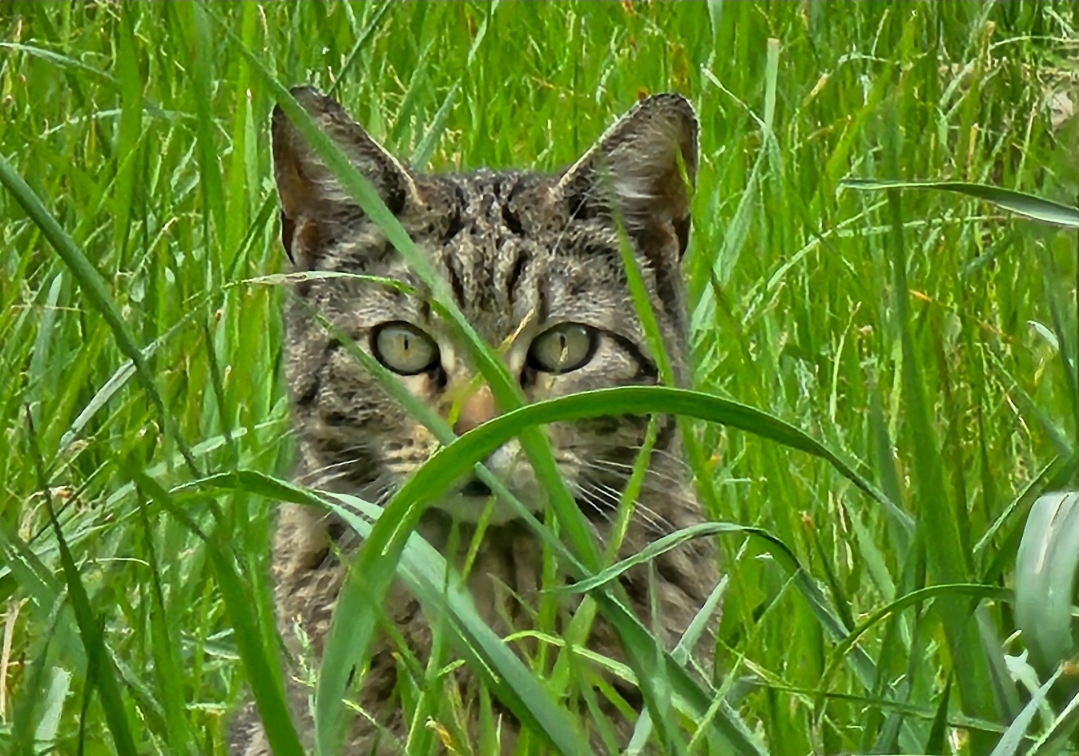
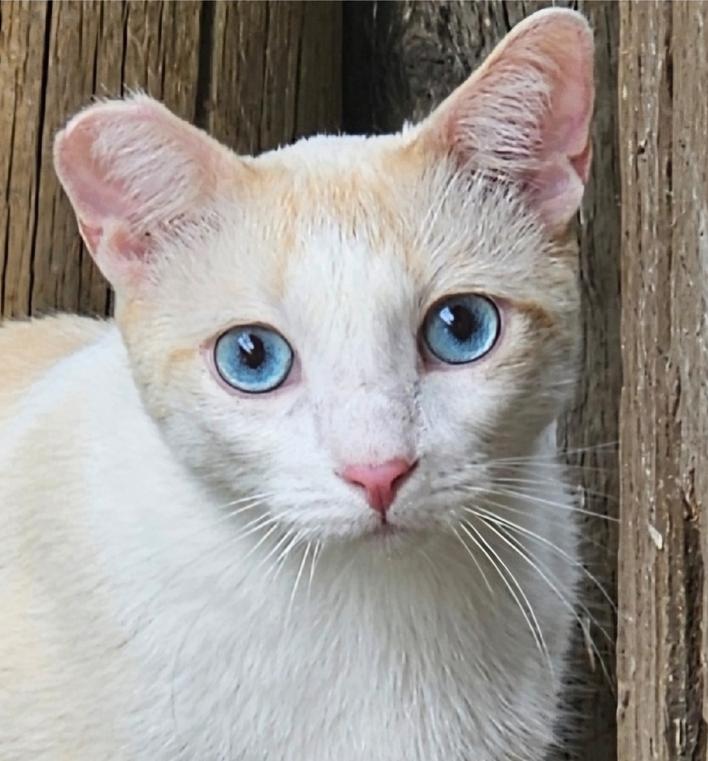
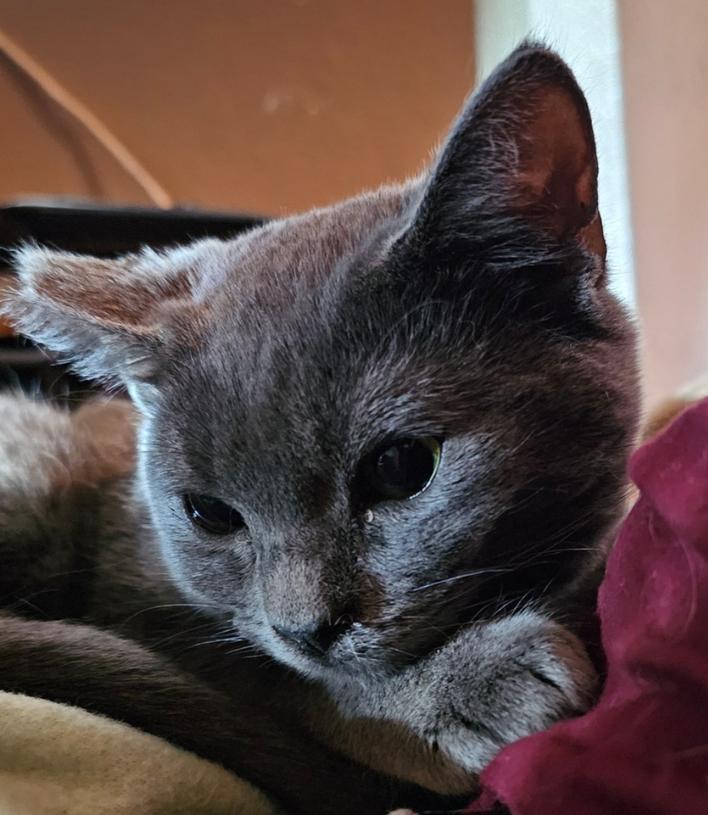
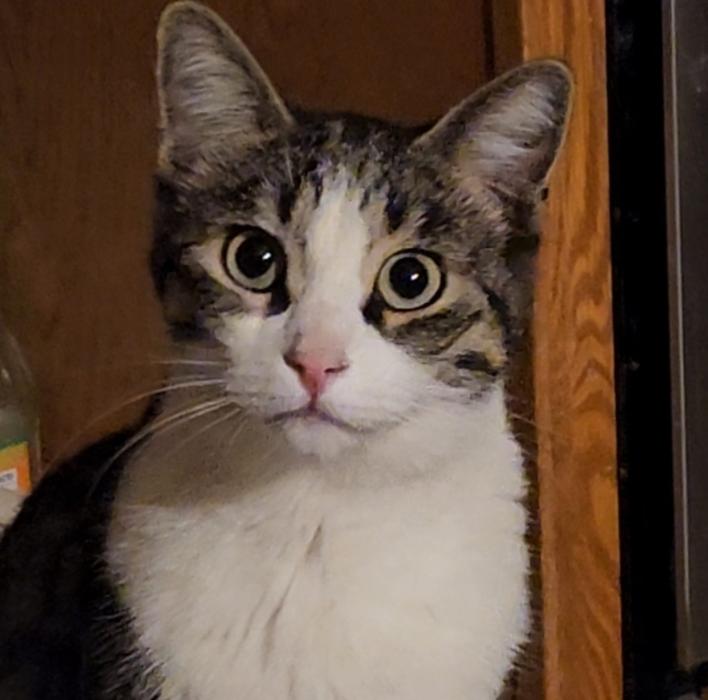
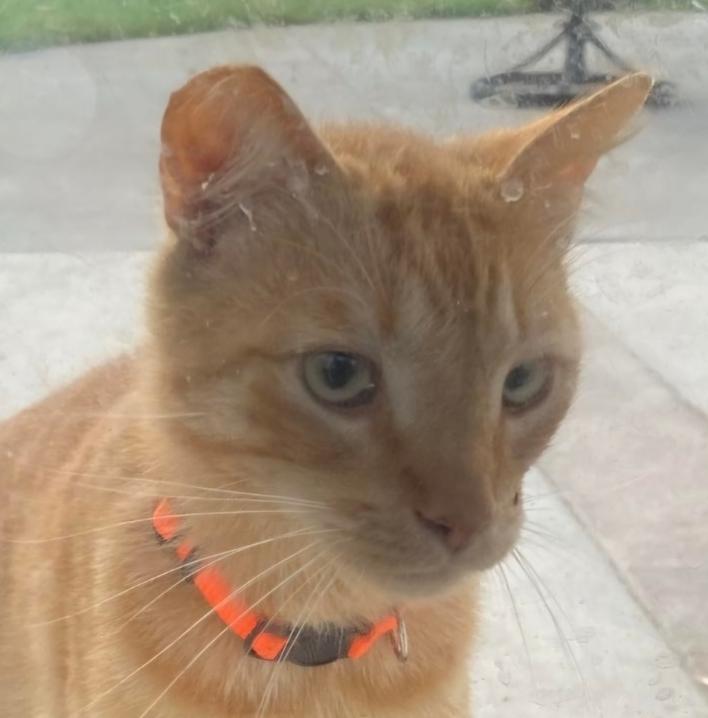
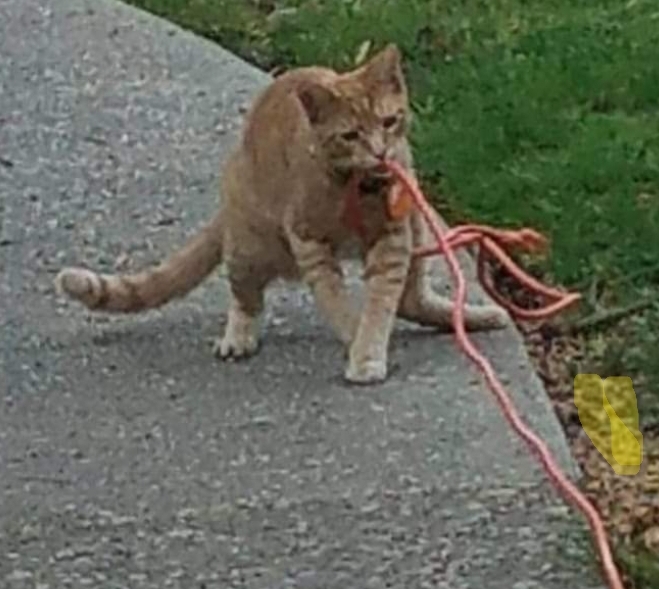
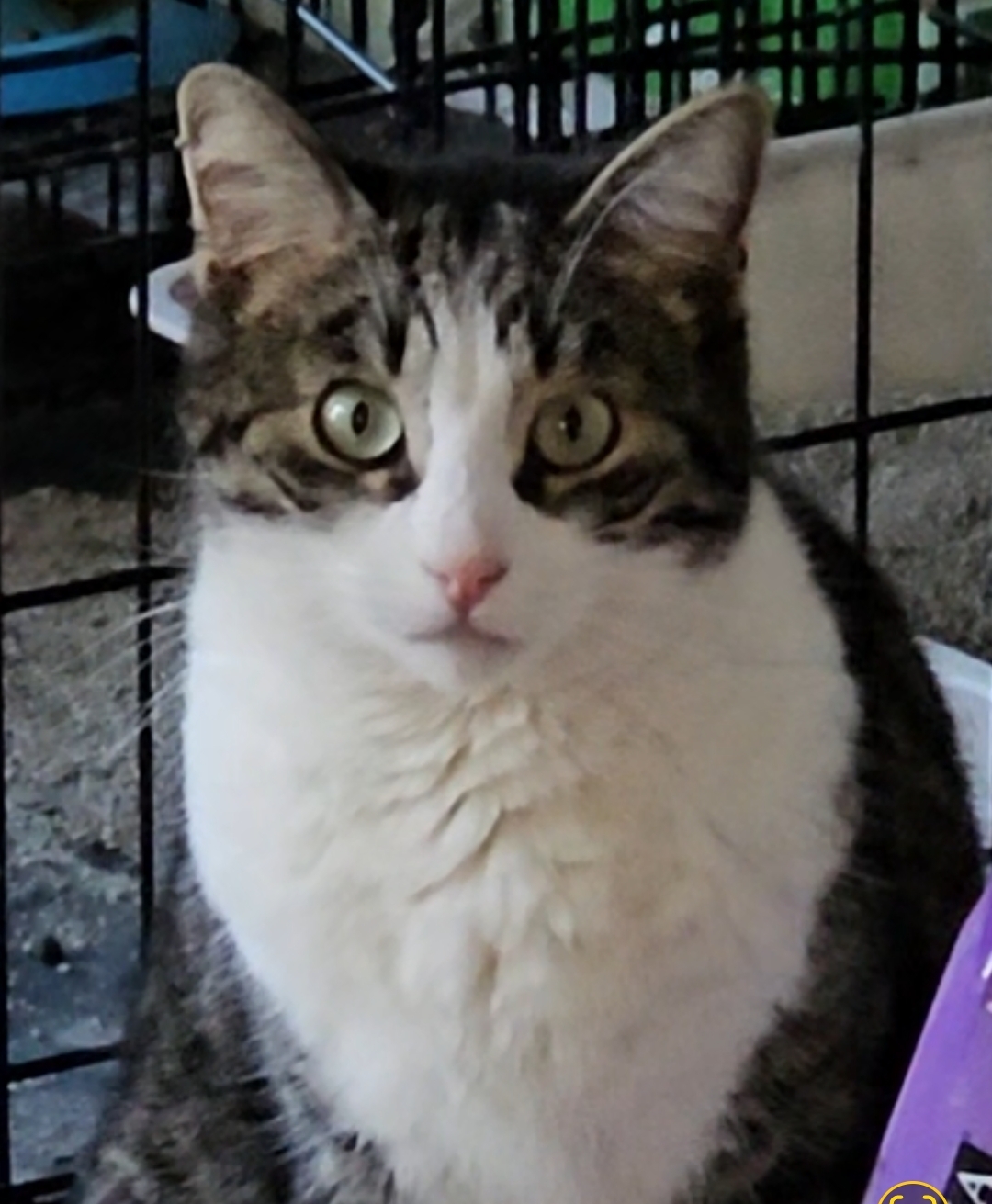
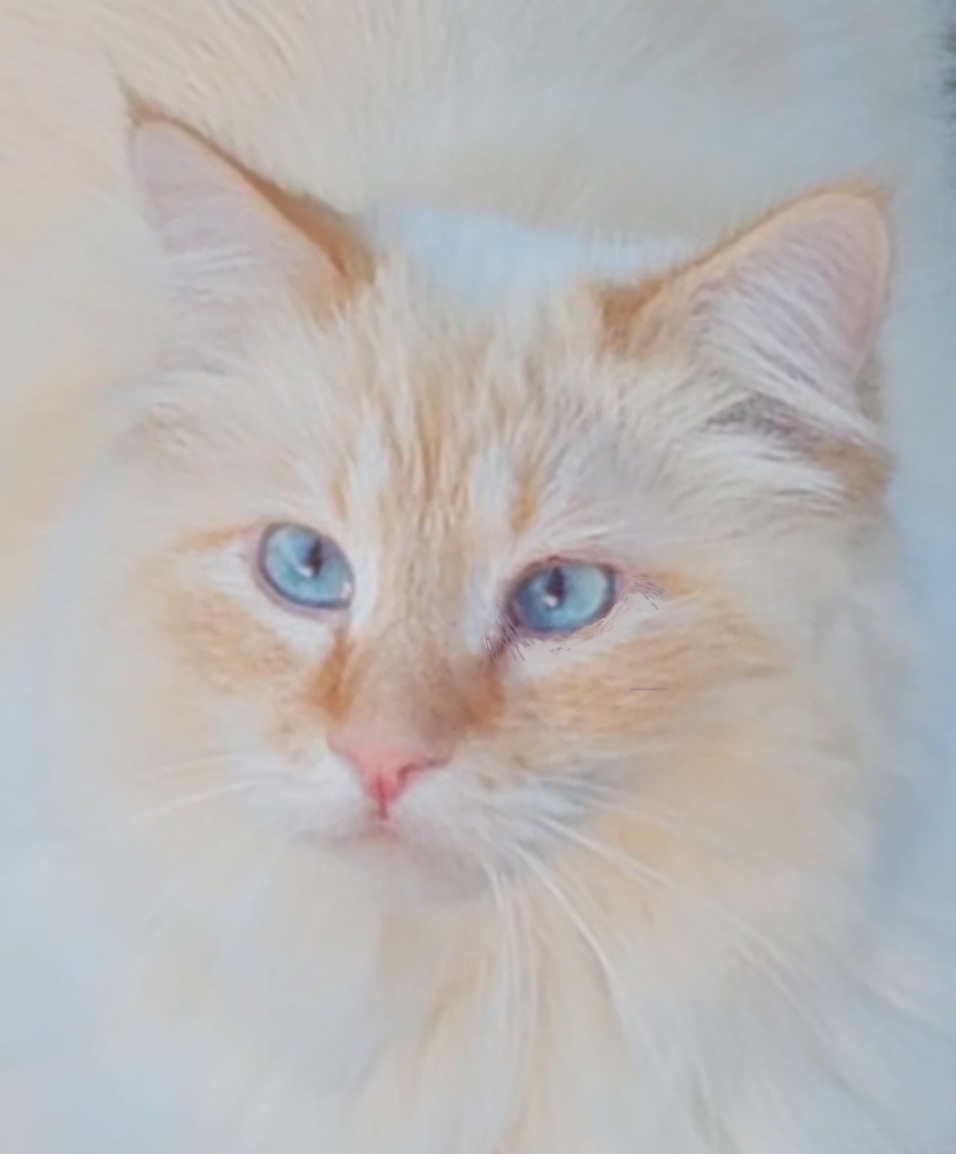
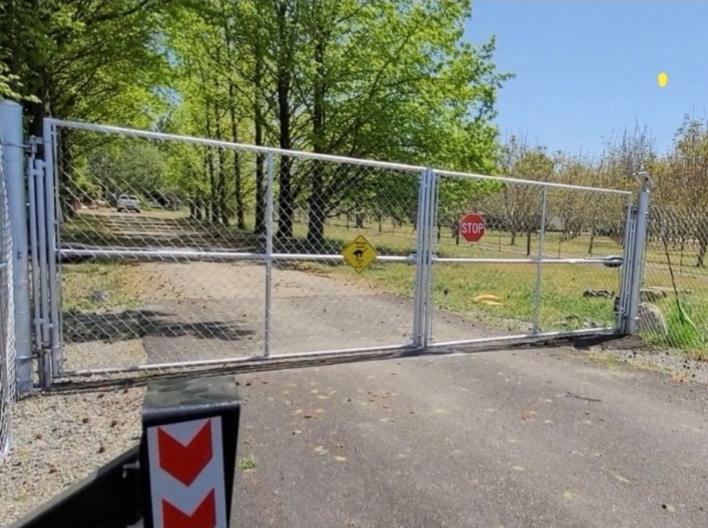
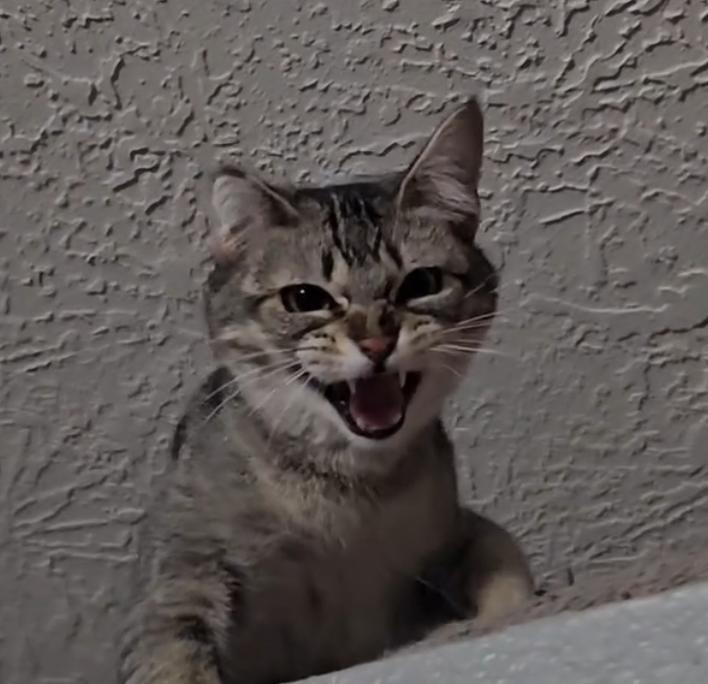
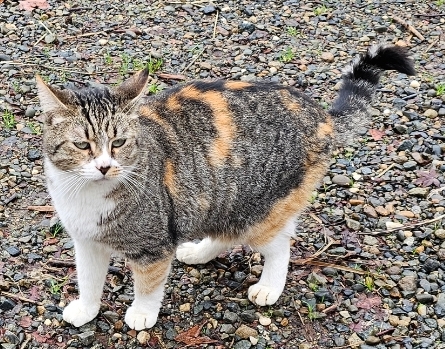
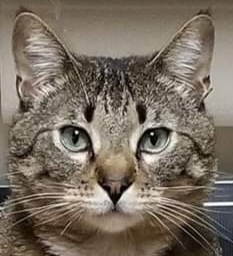
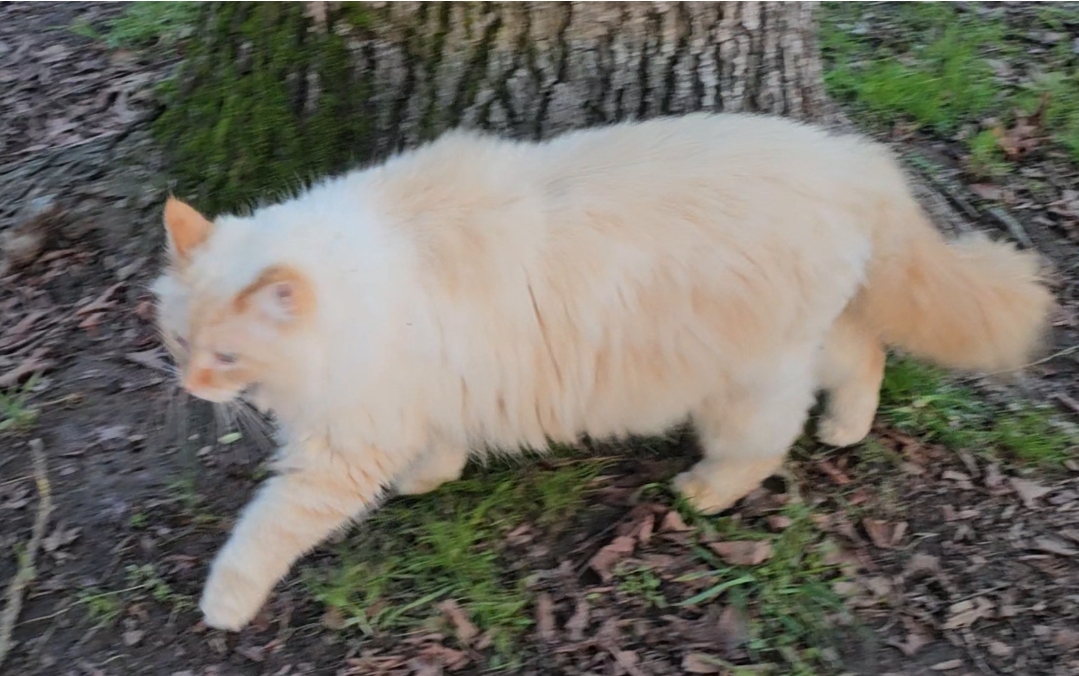
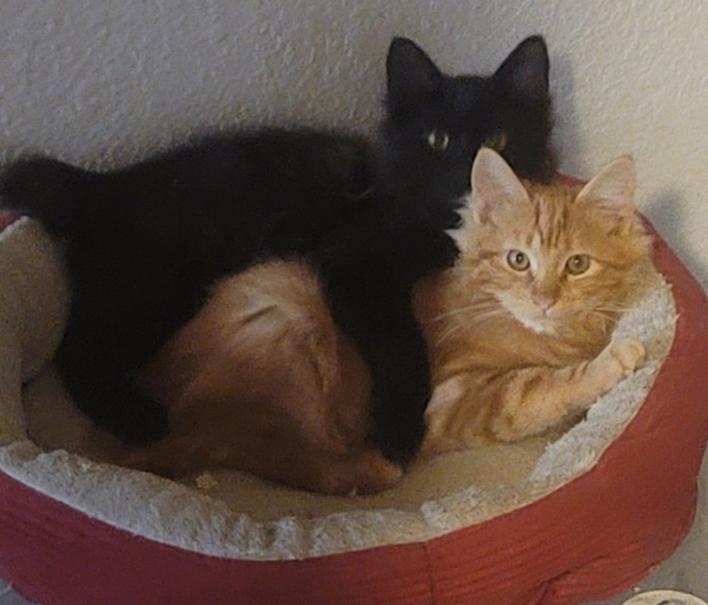
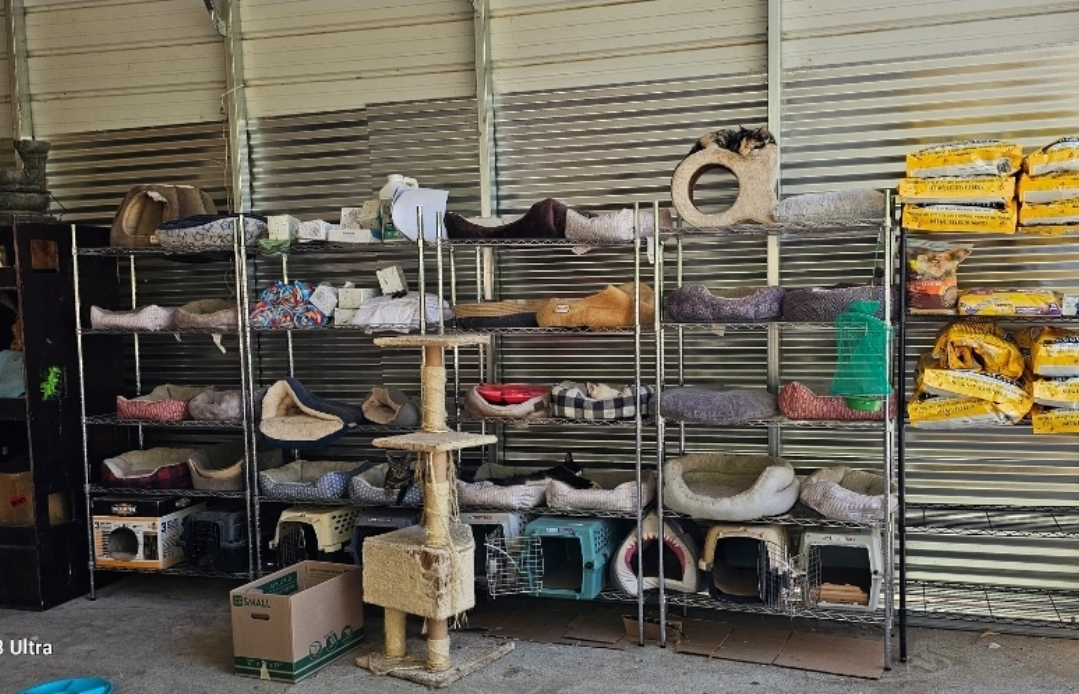
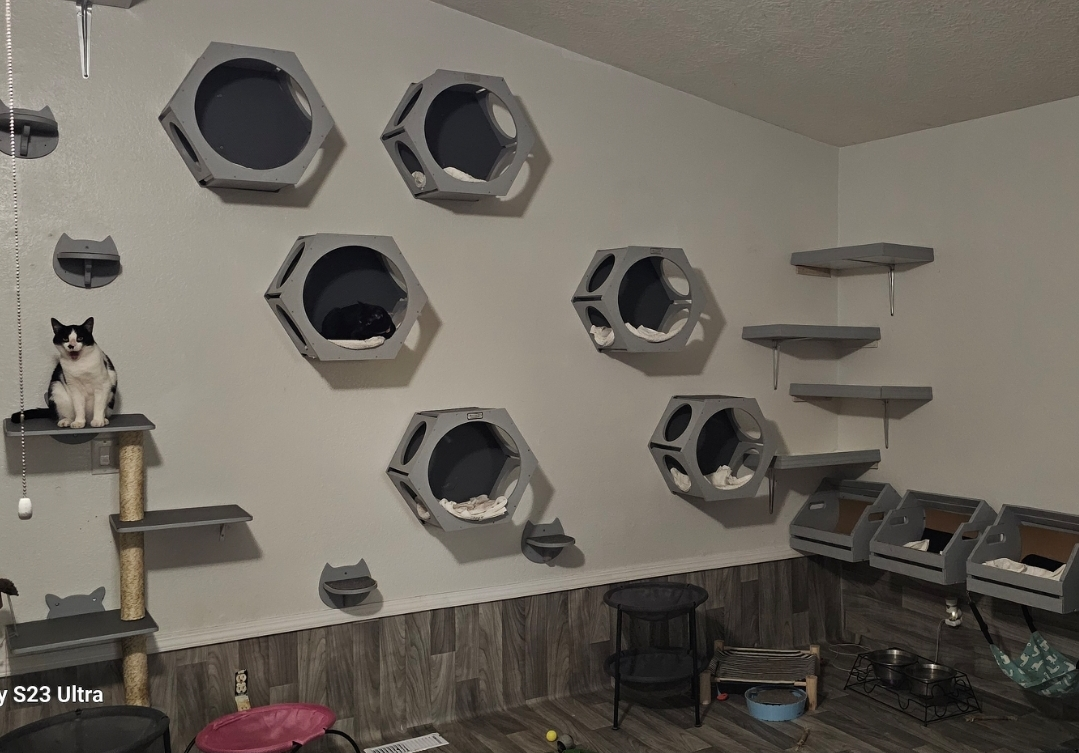
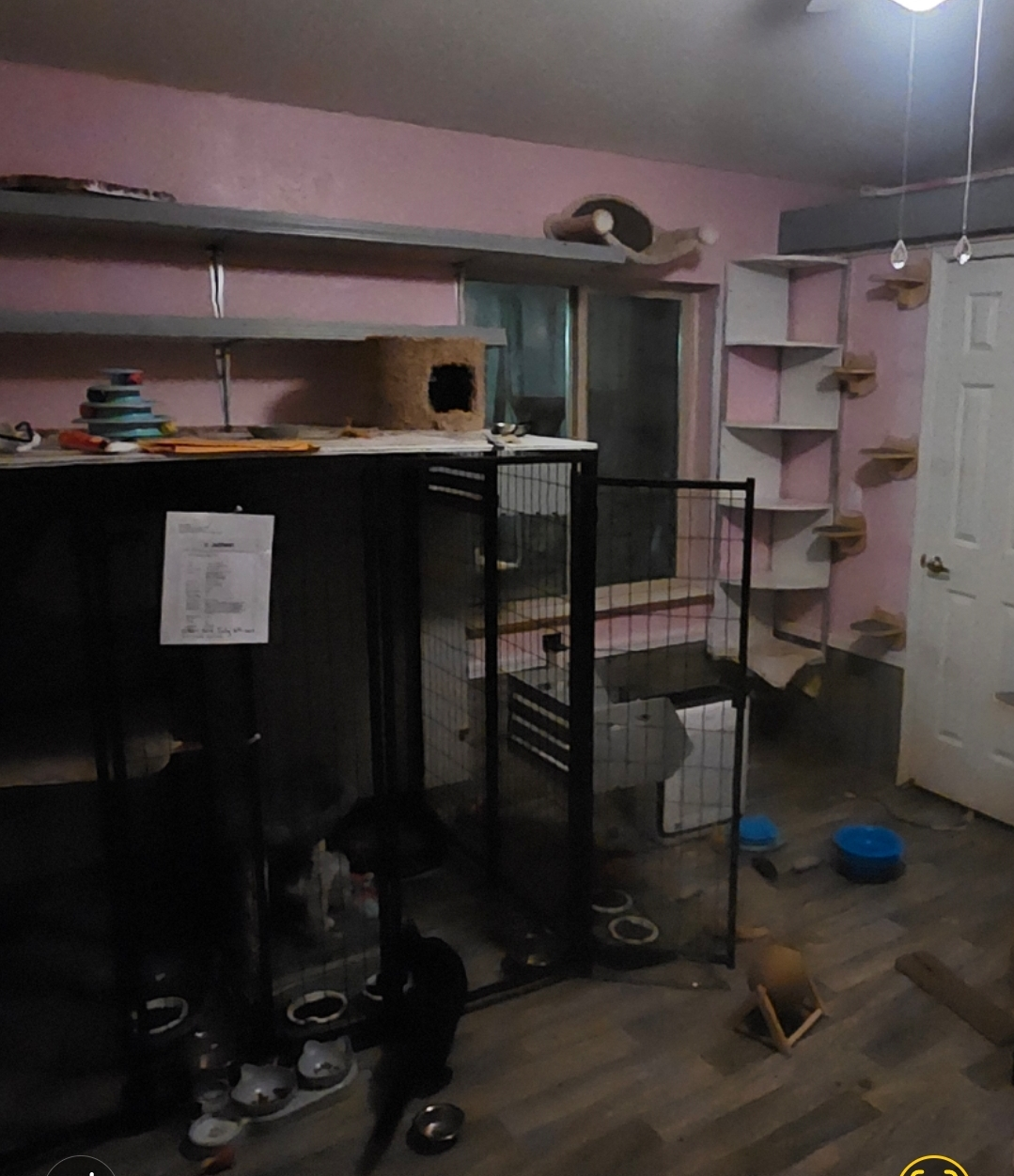
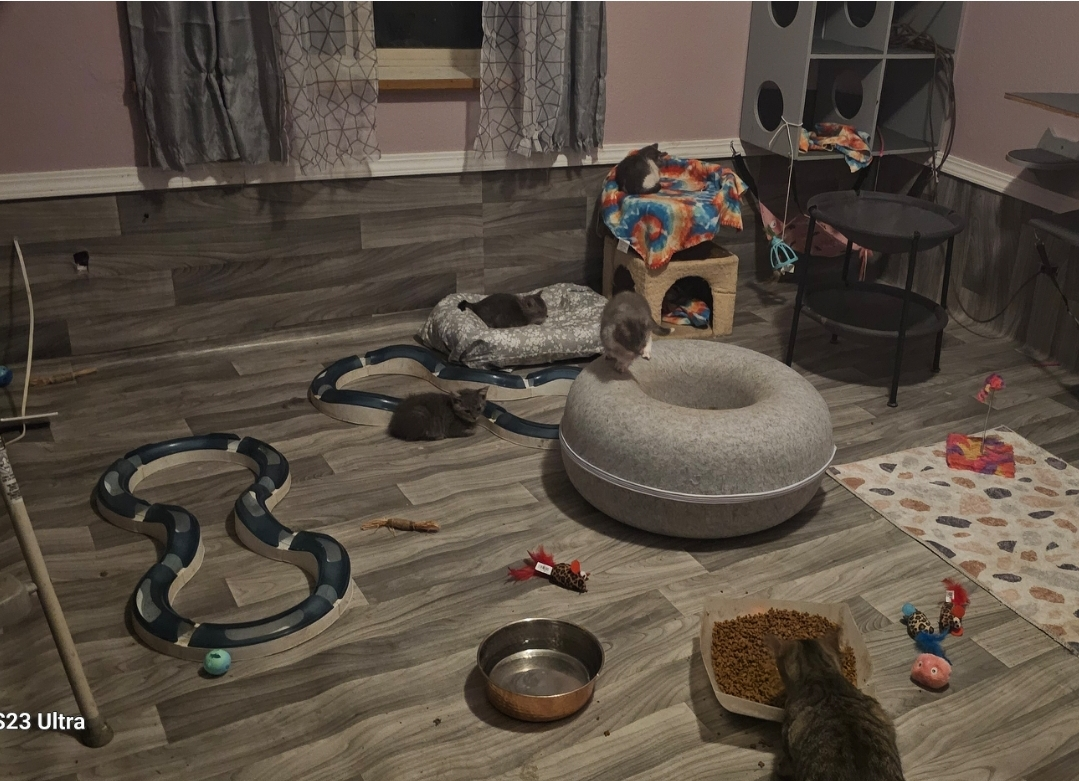
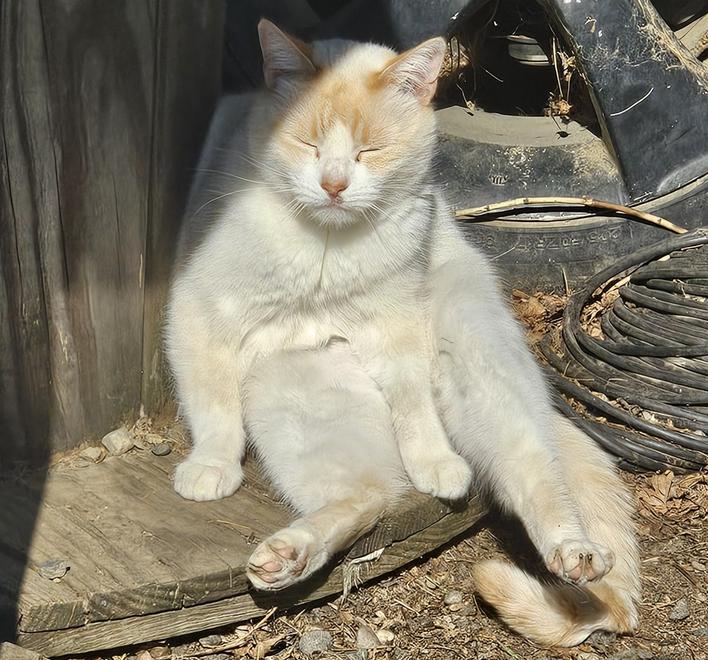
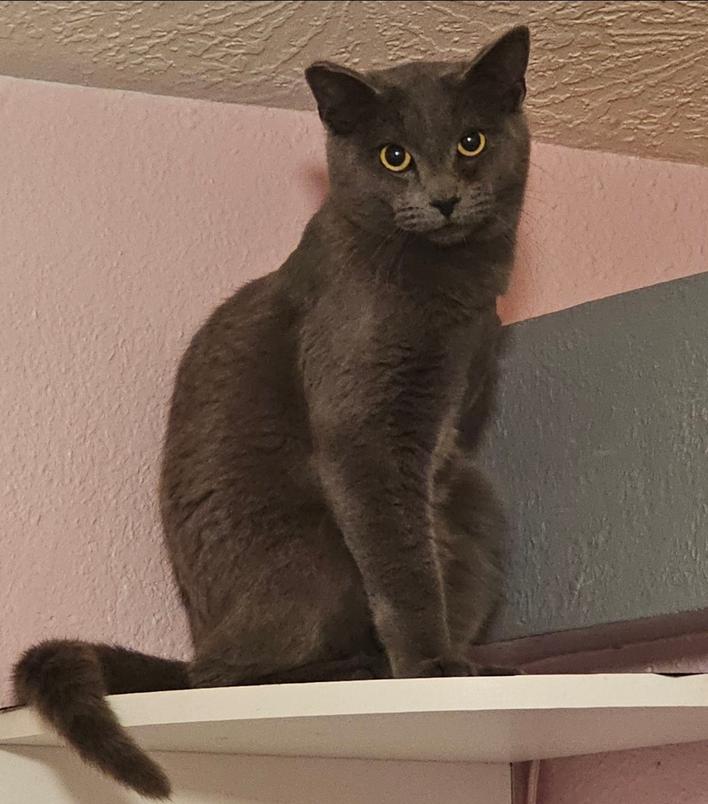
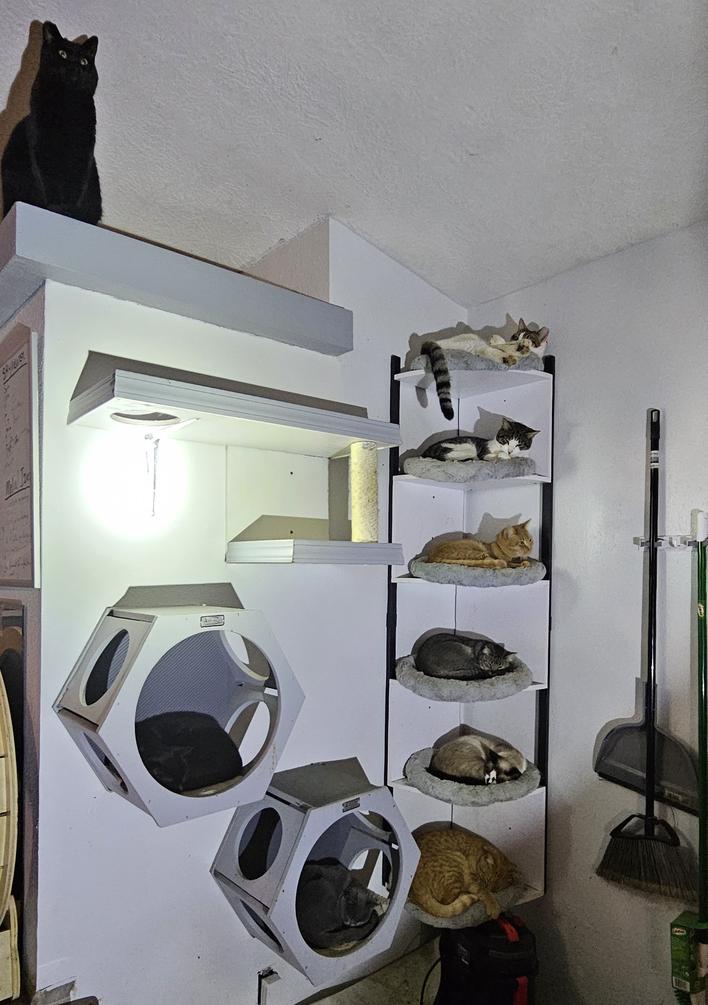
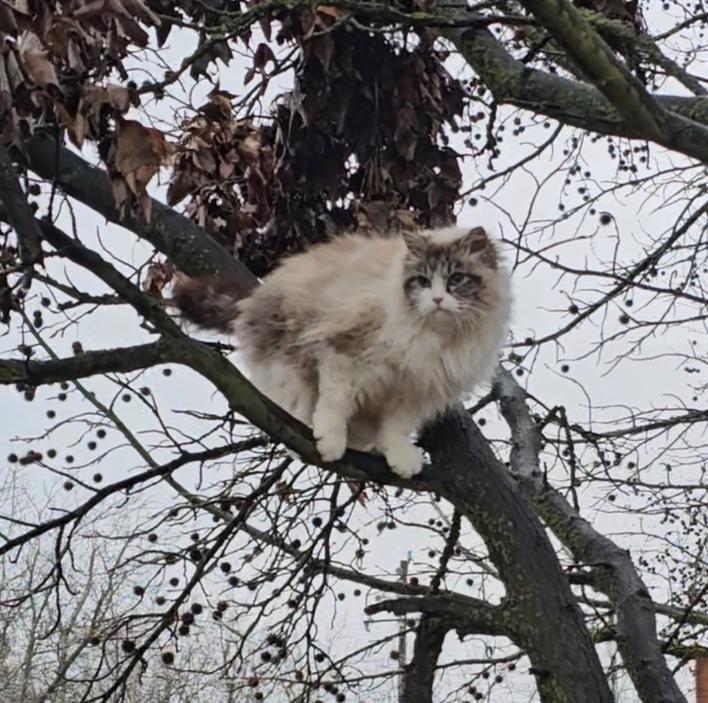
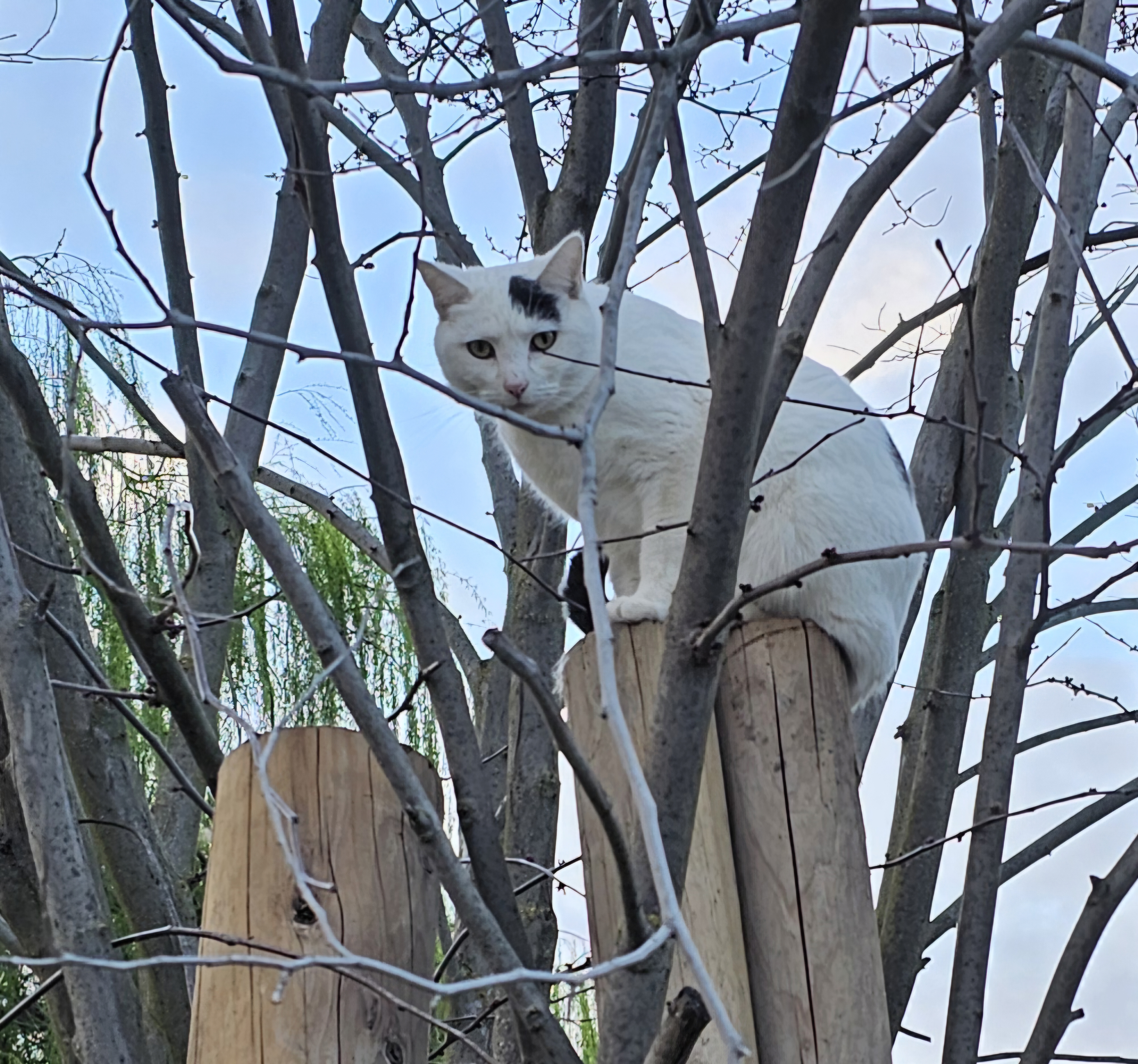
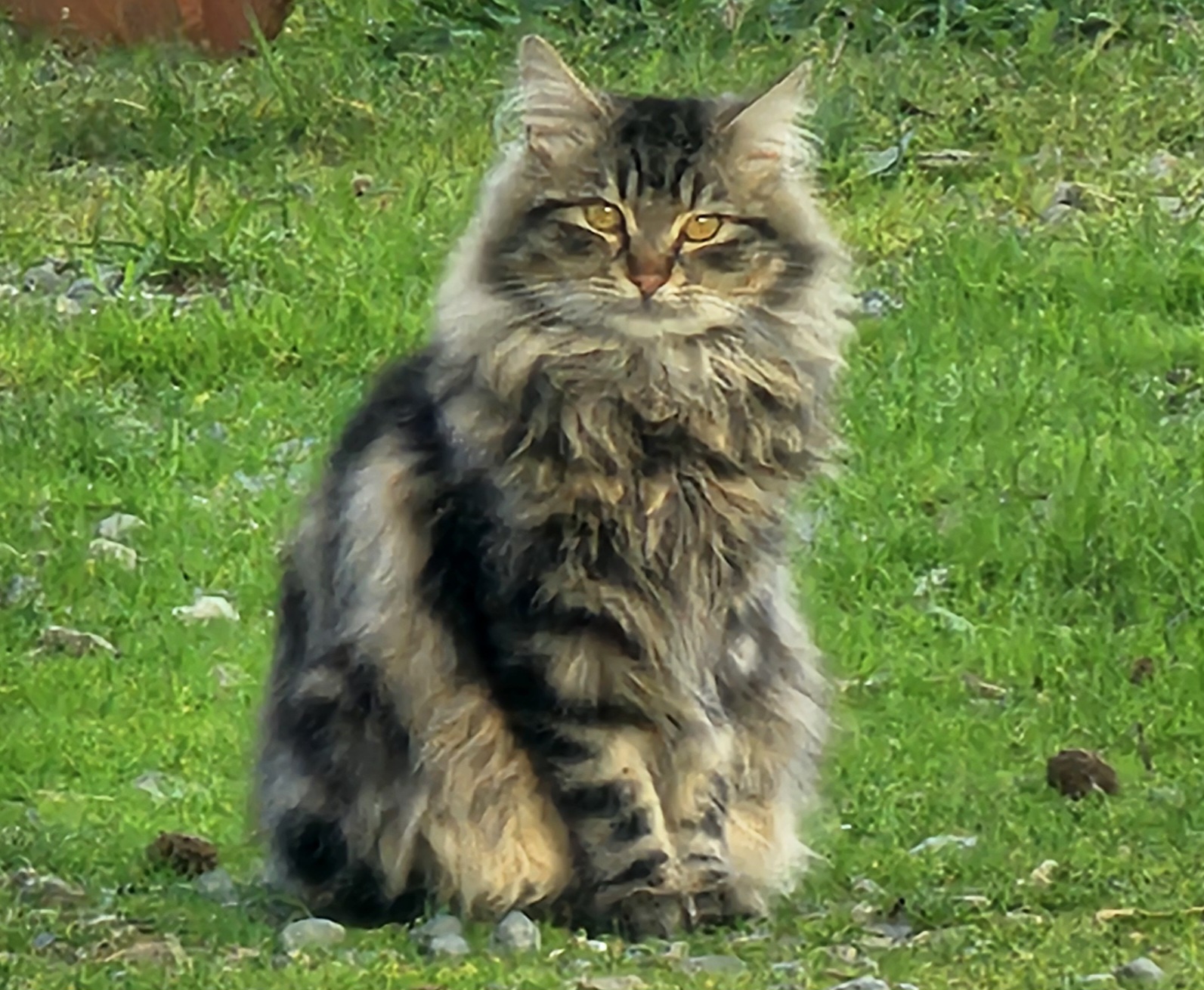
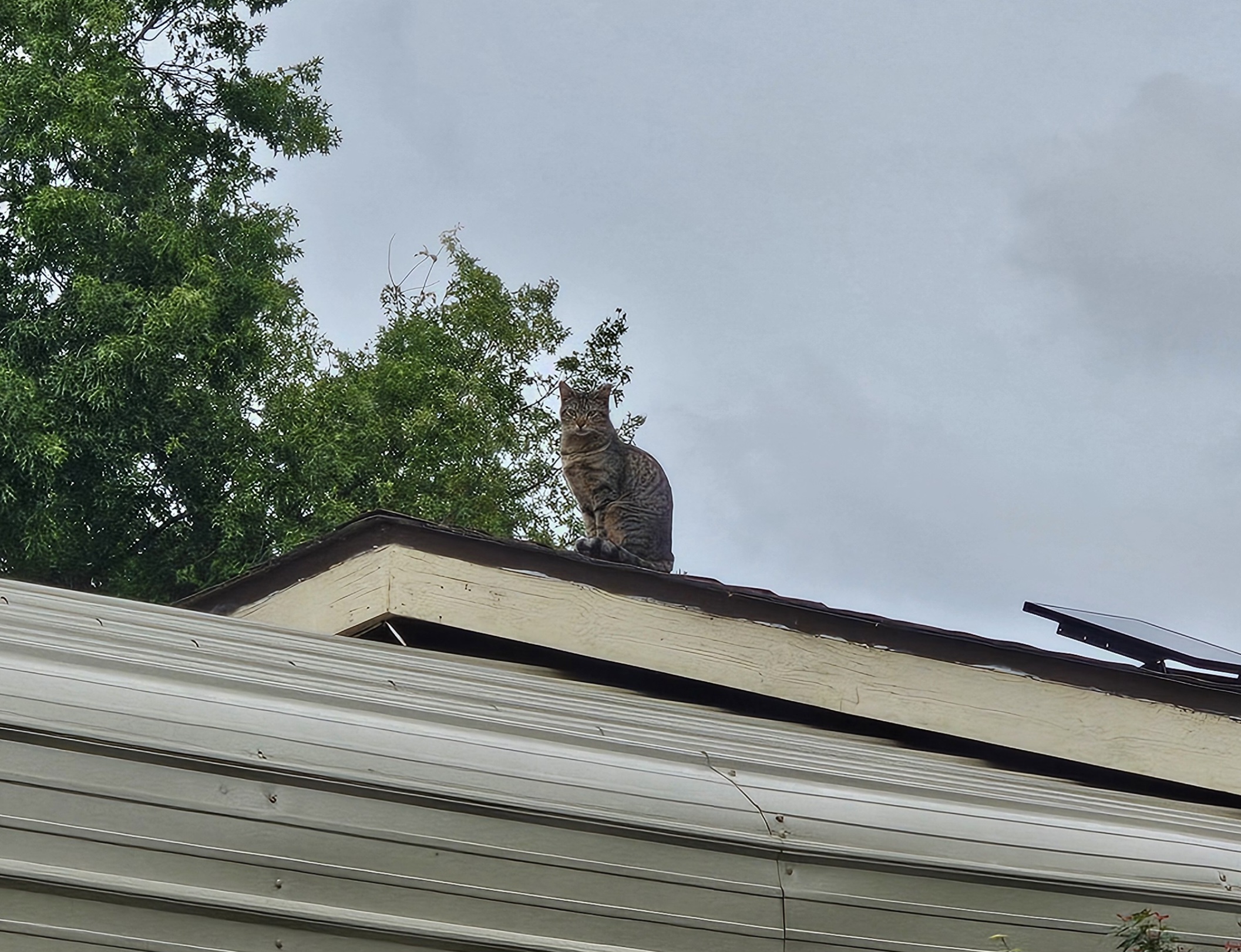
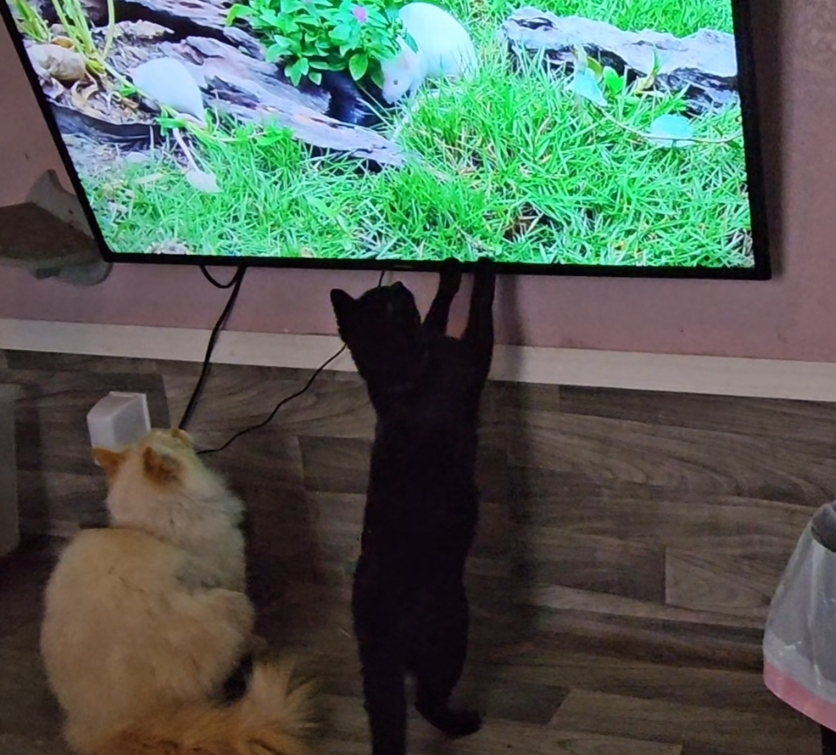
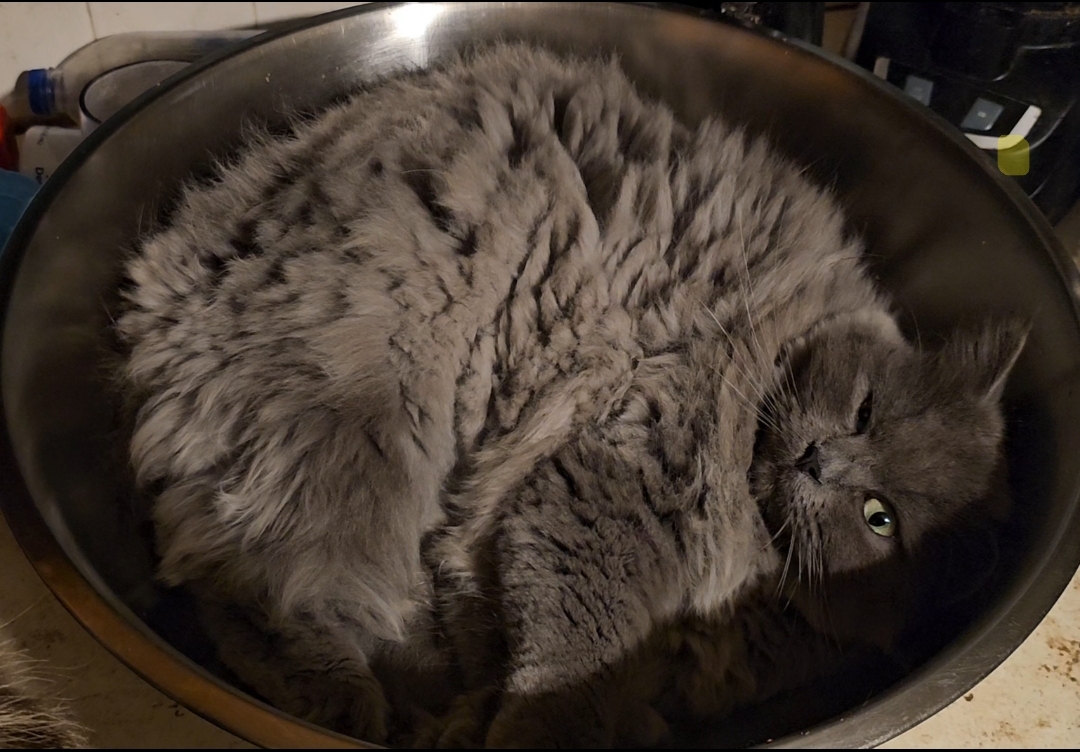

Thank you for taking June after my mom passed.
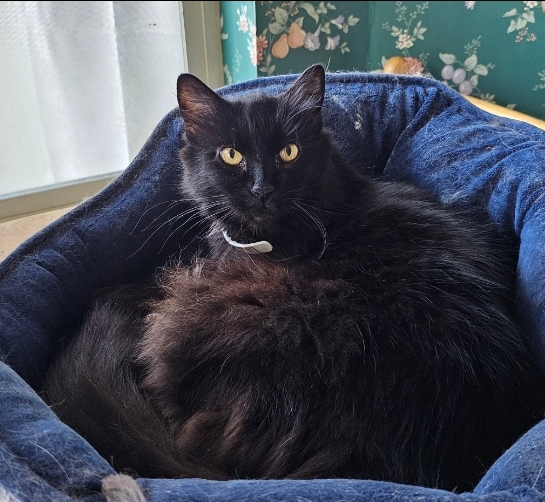
Susan F.
You give her lots of love and a wonderful life. I'm so grateful.
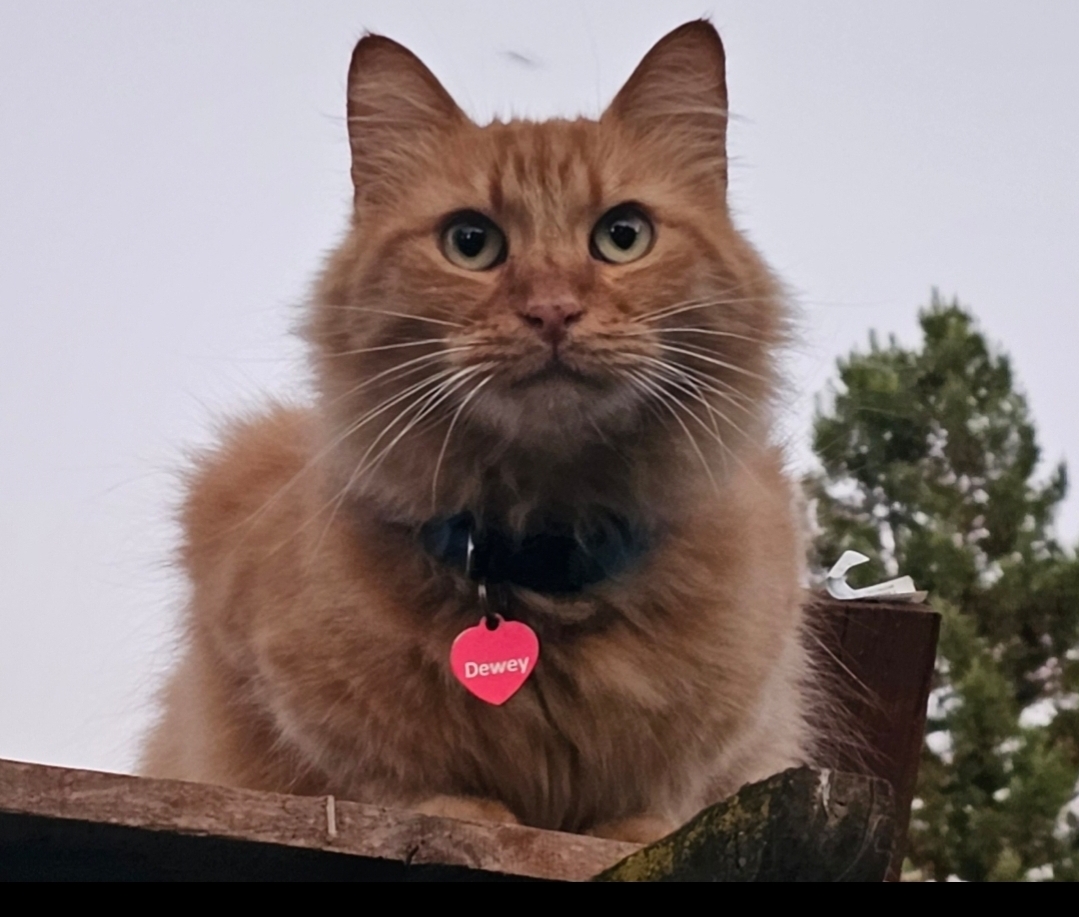
My daughter asks me about them but she understands why we had to leave them behind. It means so much to us thank u again❤️❤️
If you made a donation and did not receive a receipt, Please contact us by December 28th of the same year. All donations are logged.
